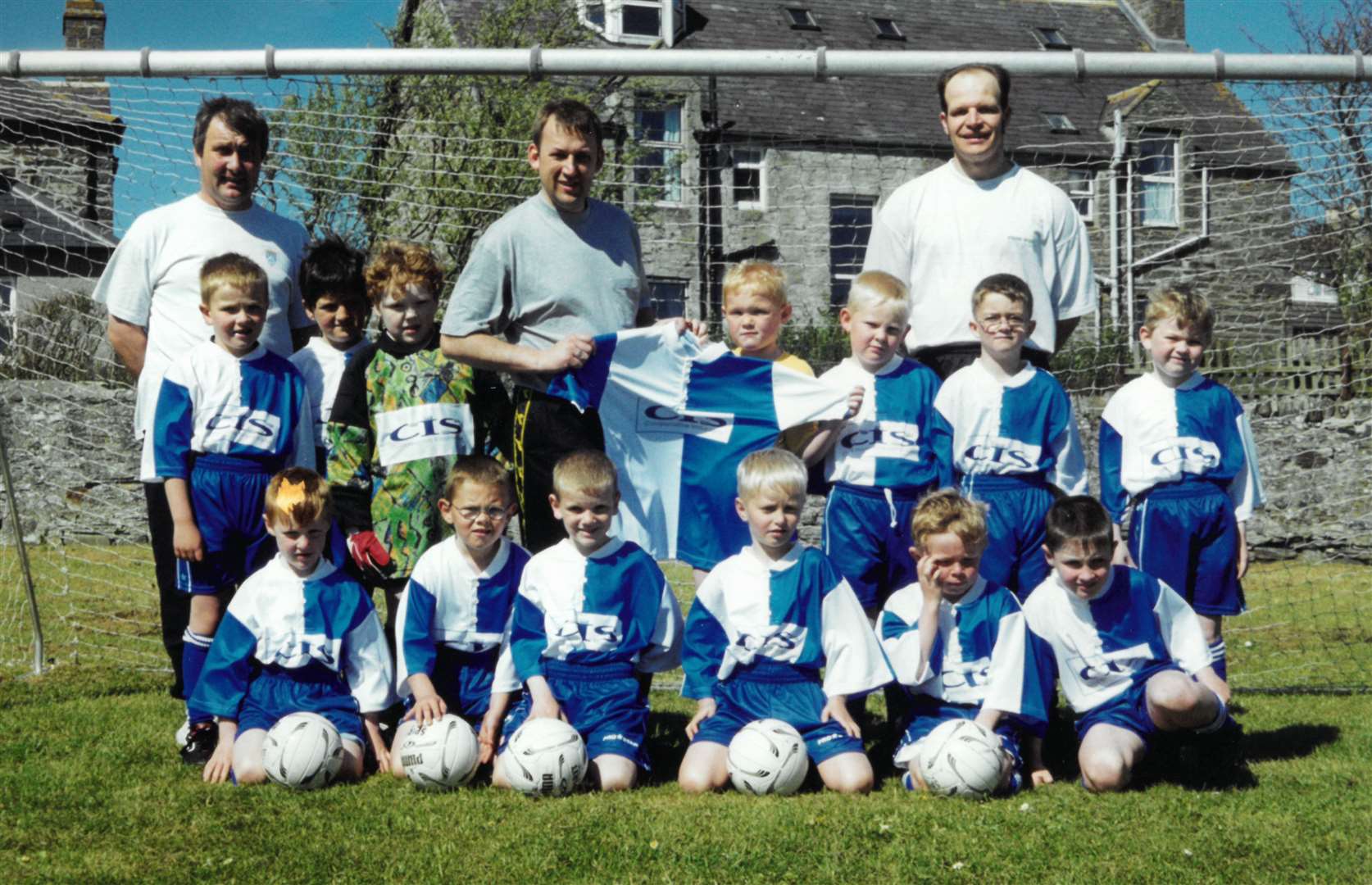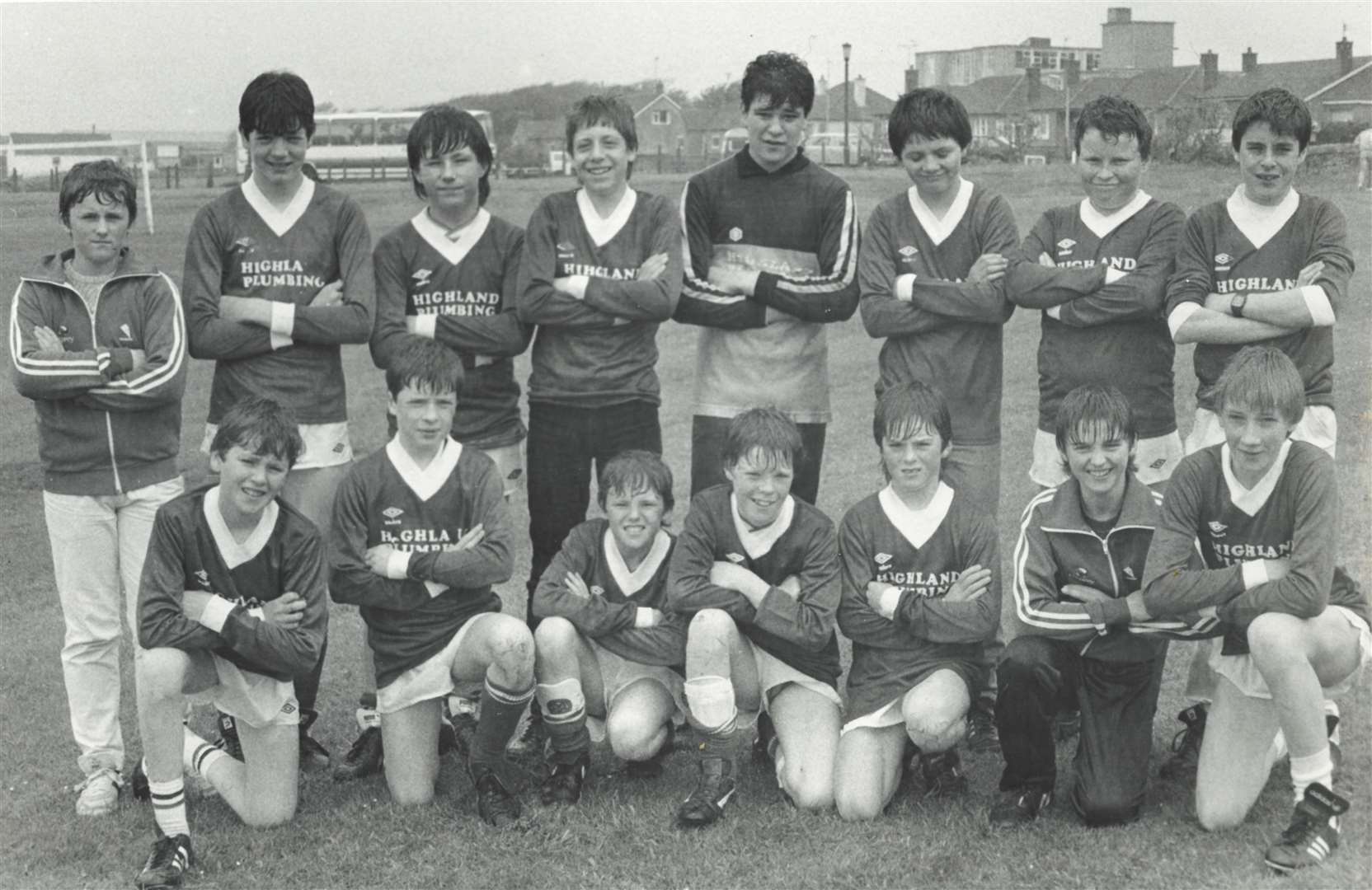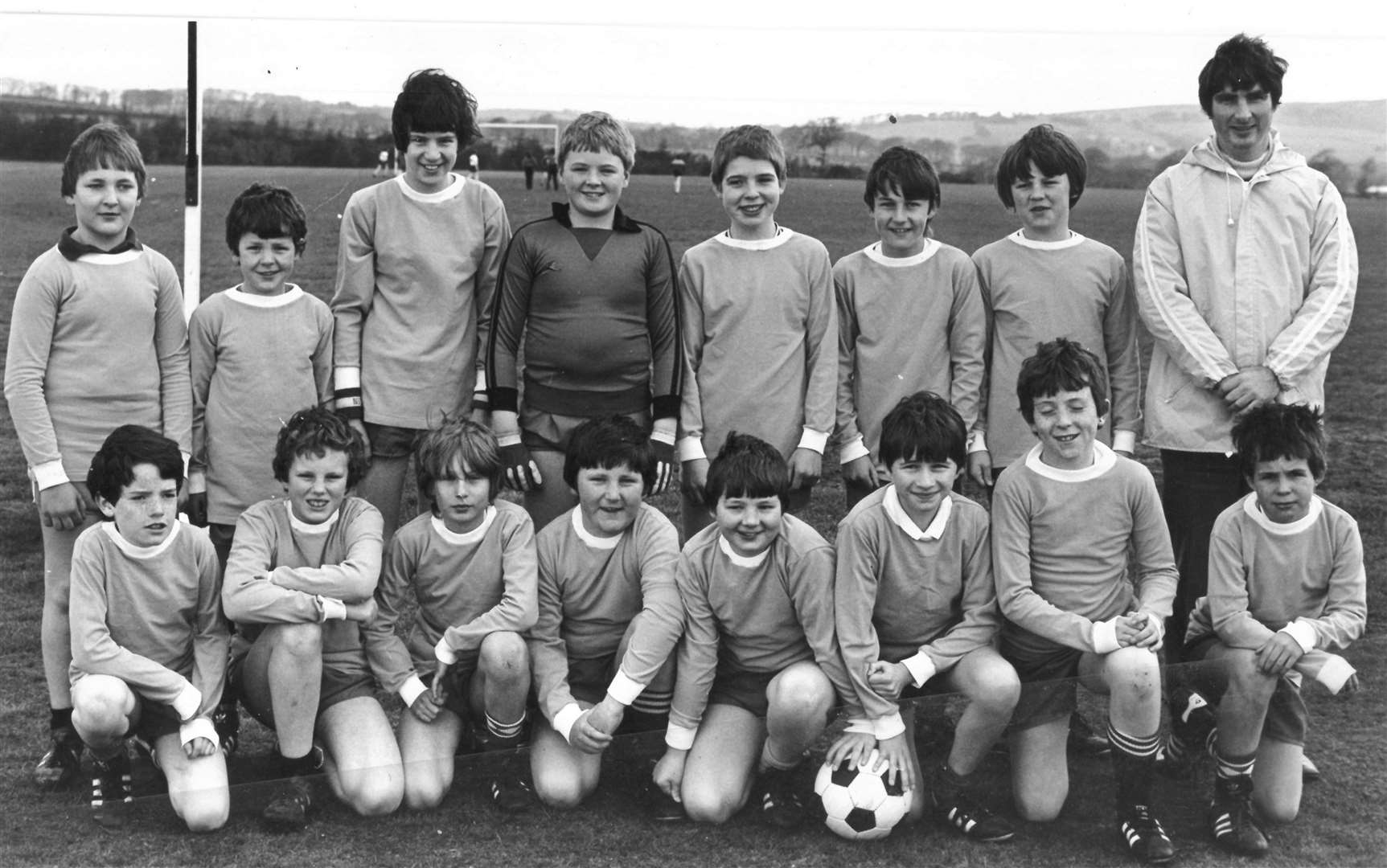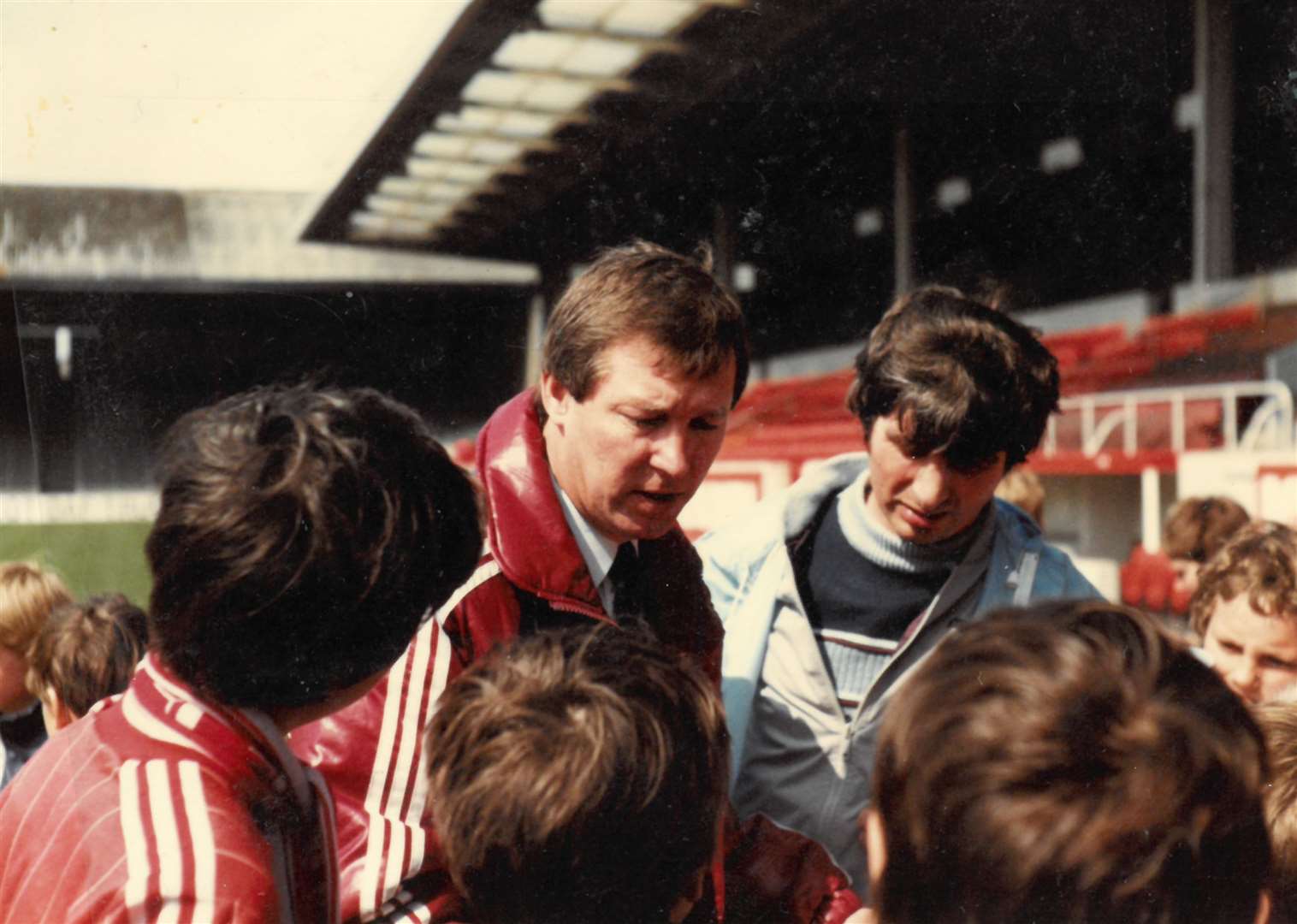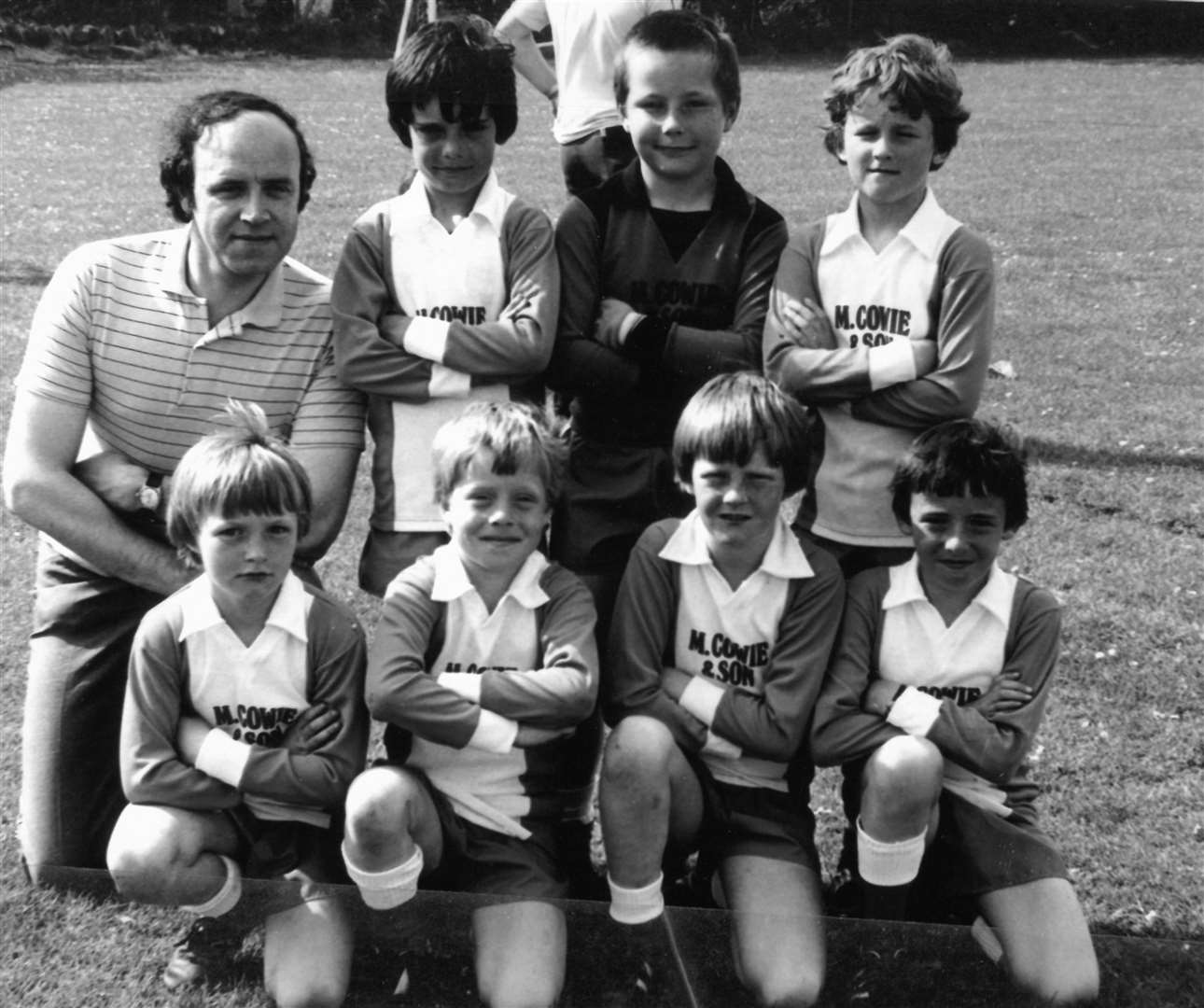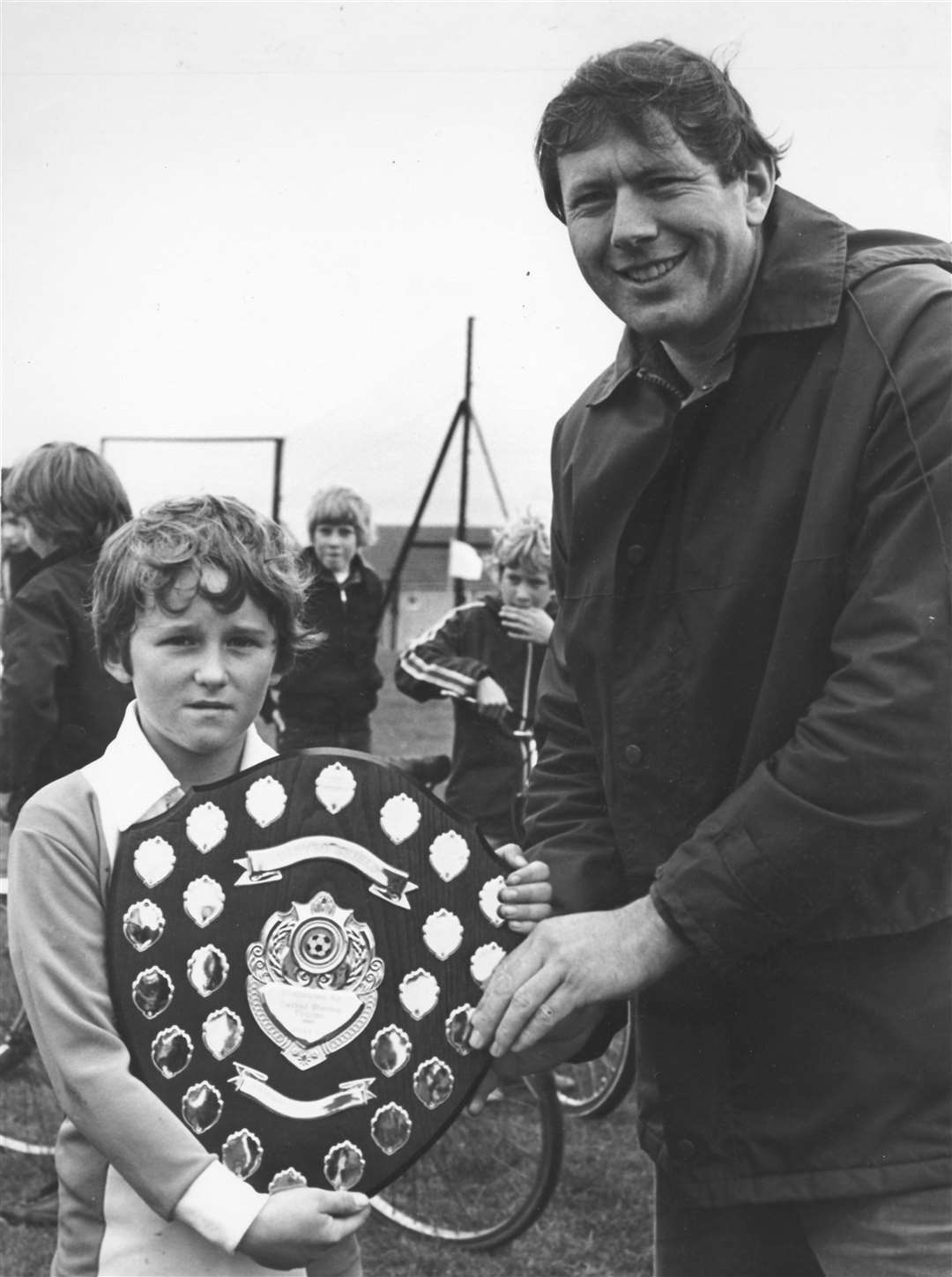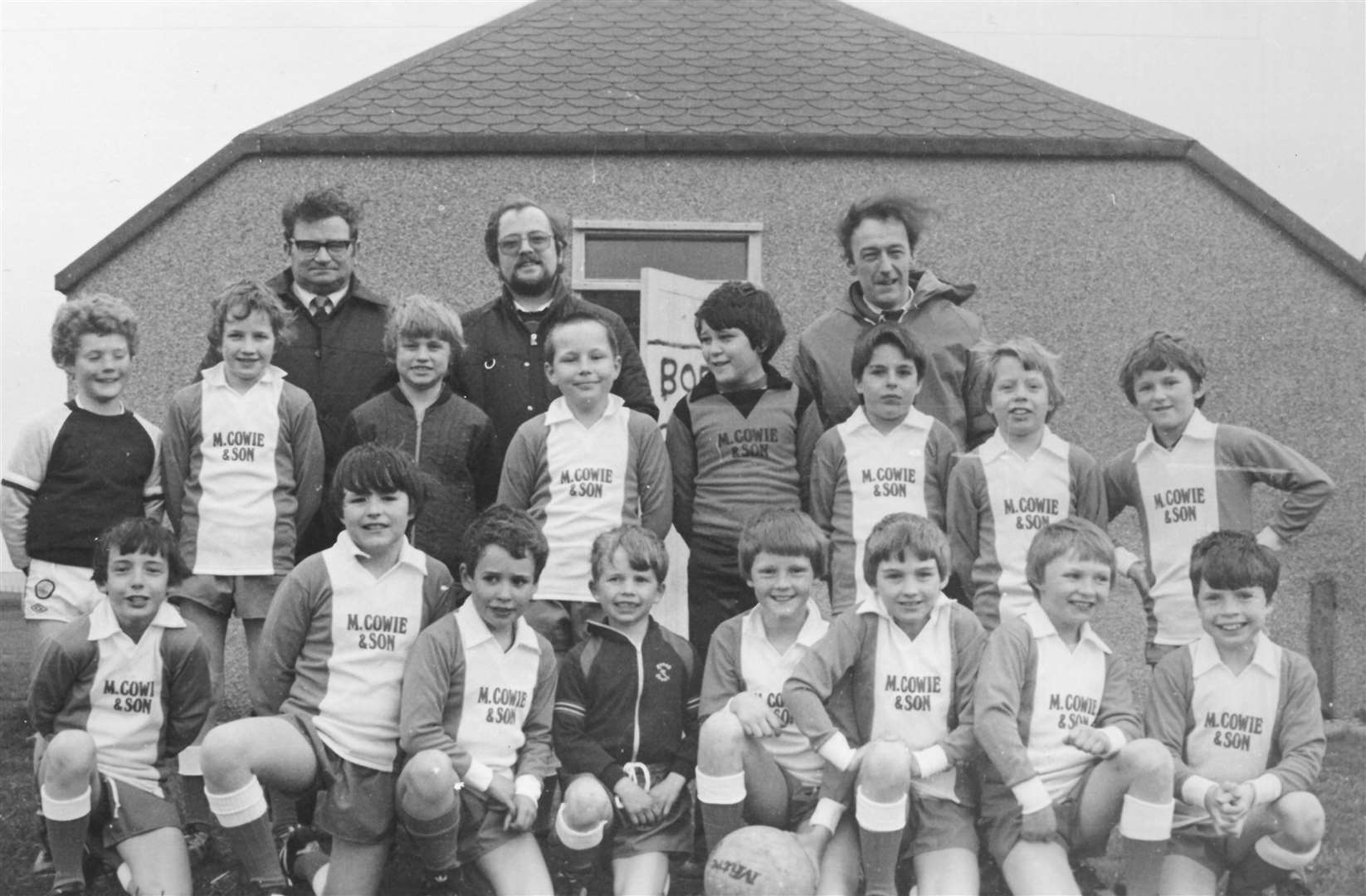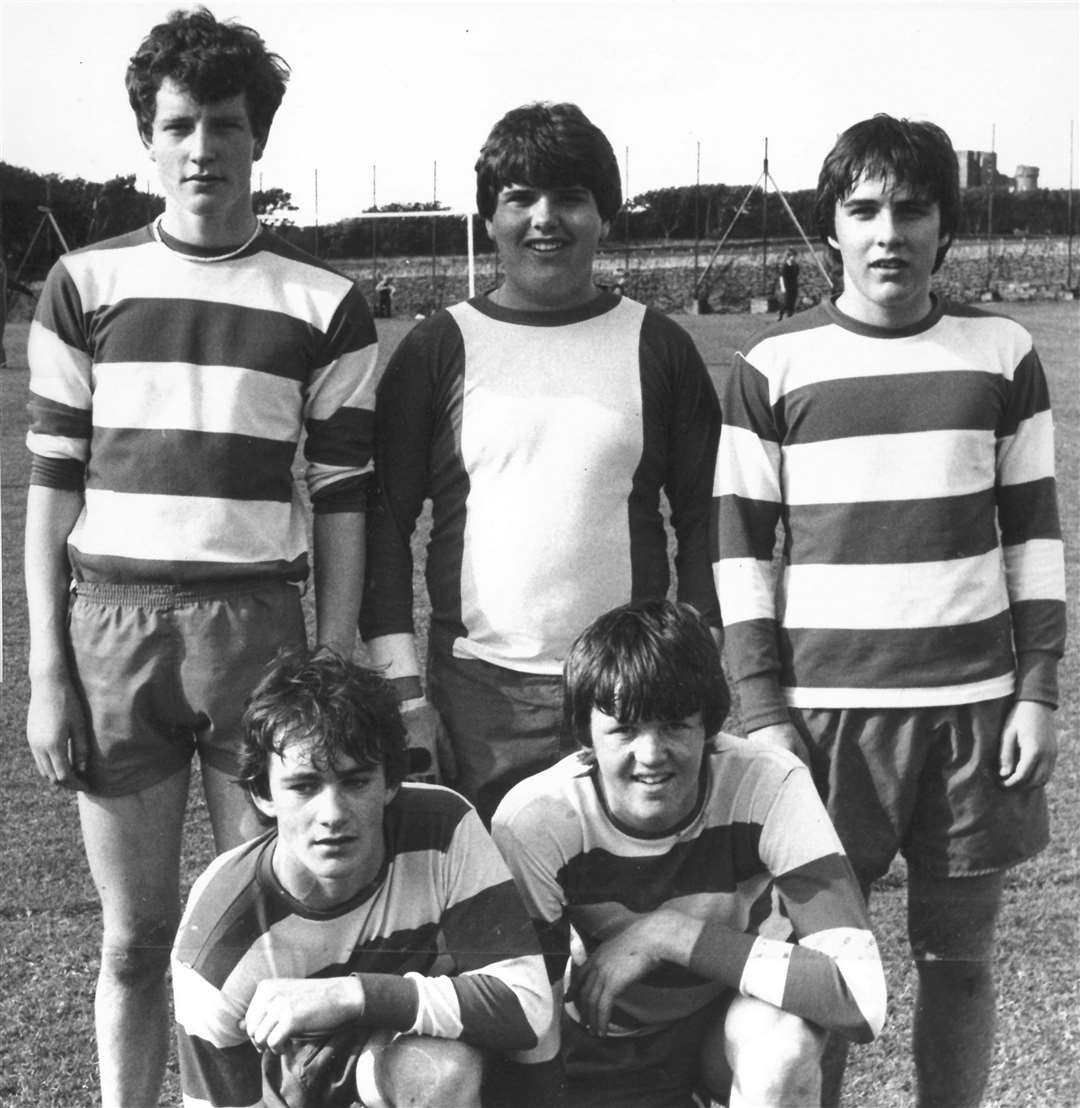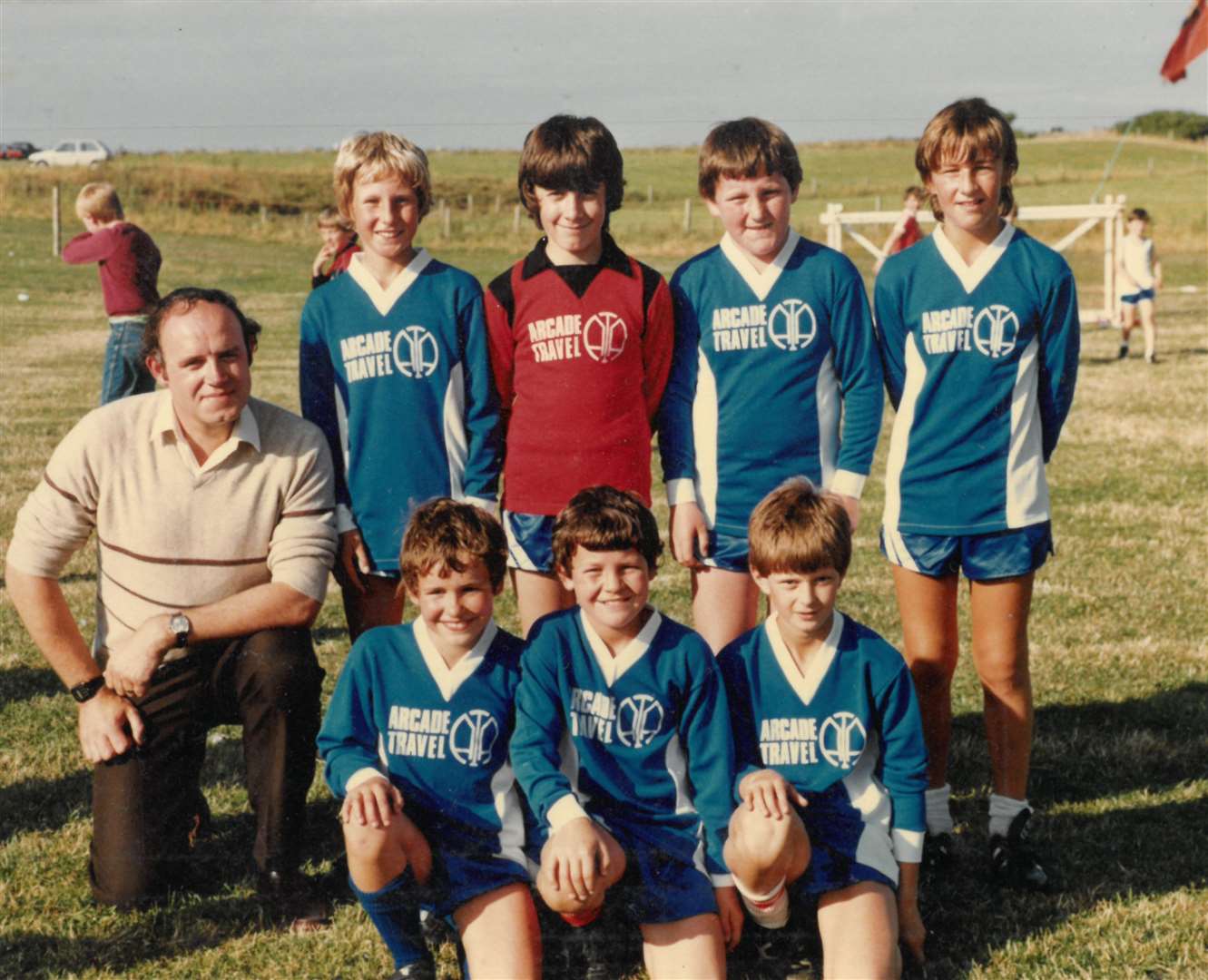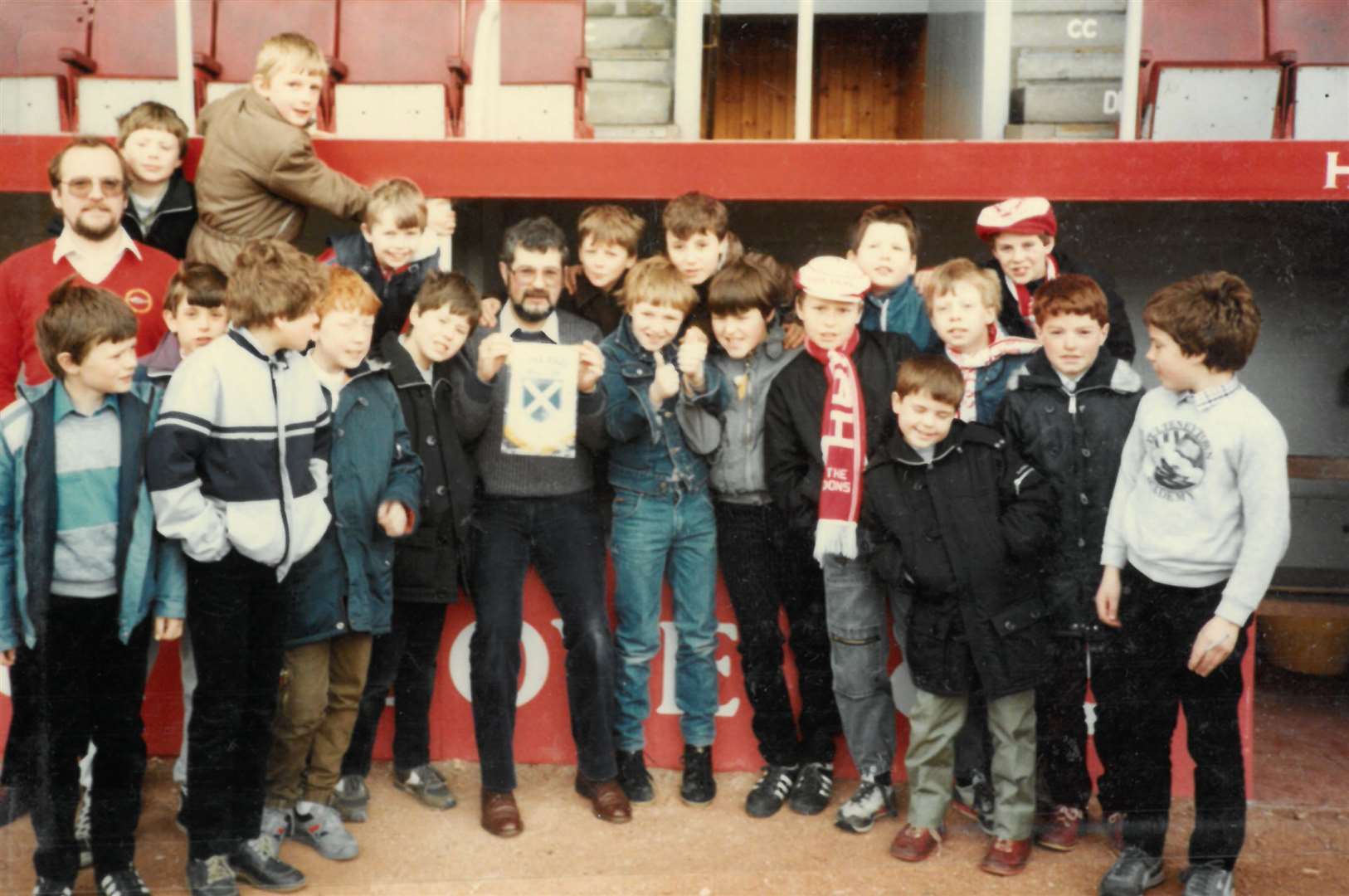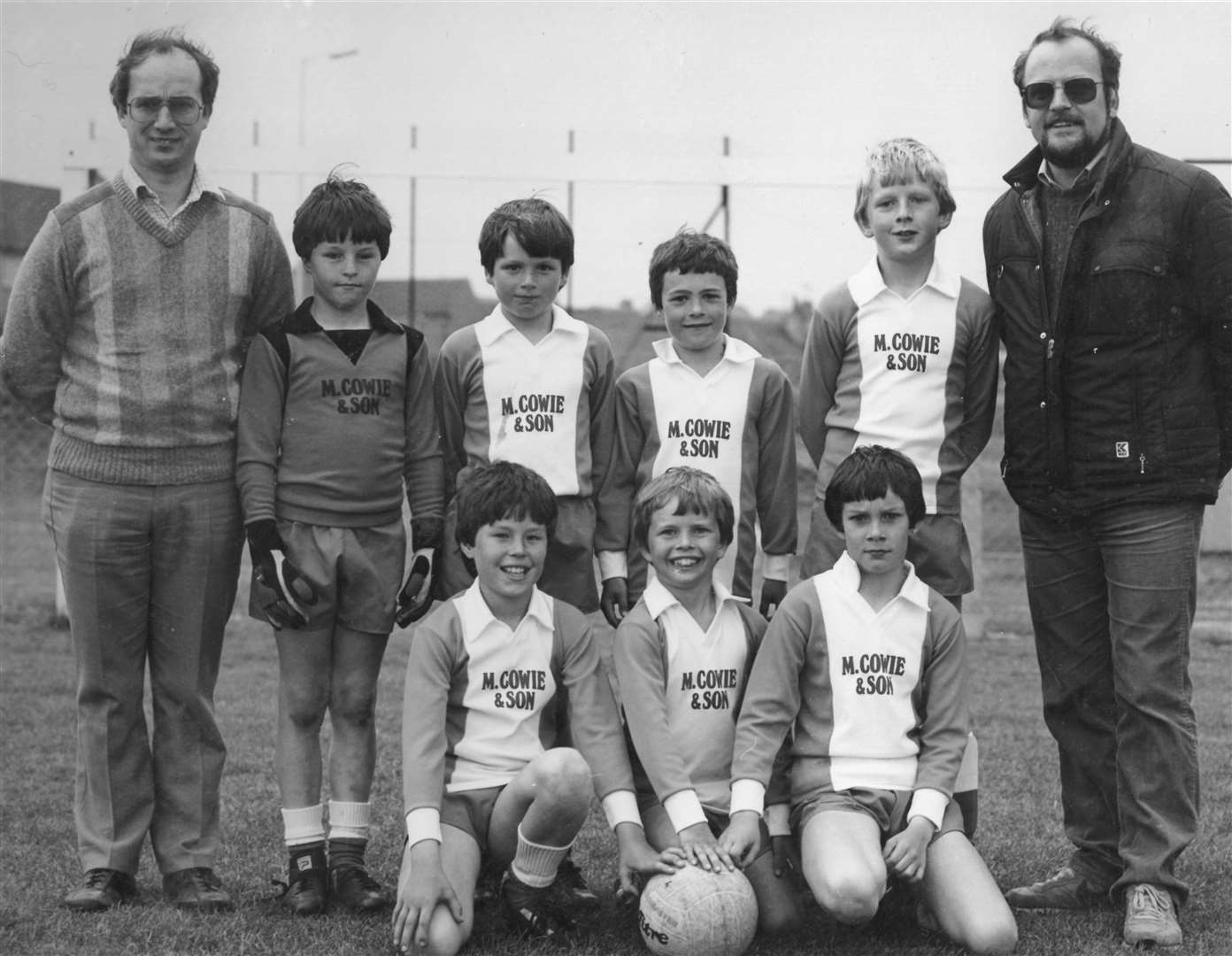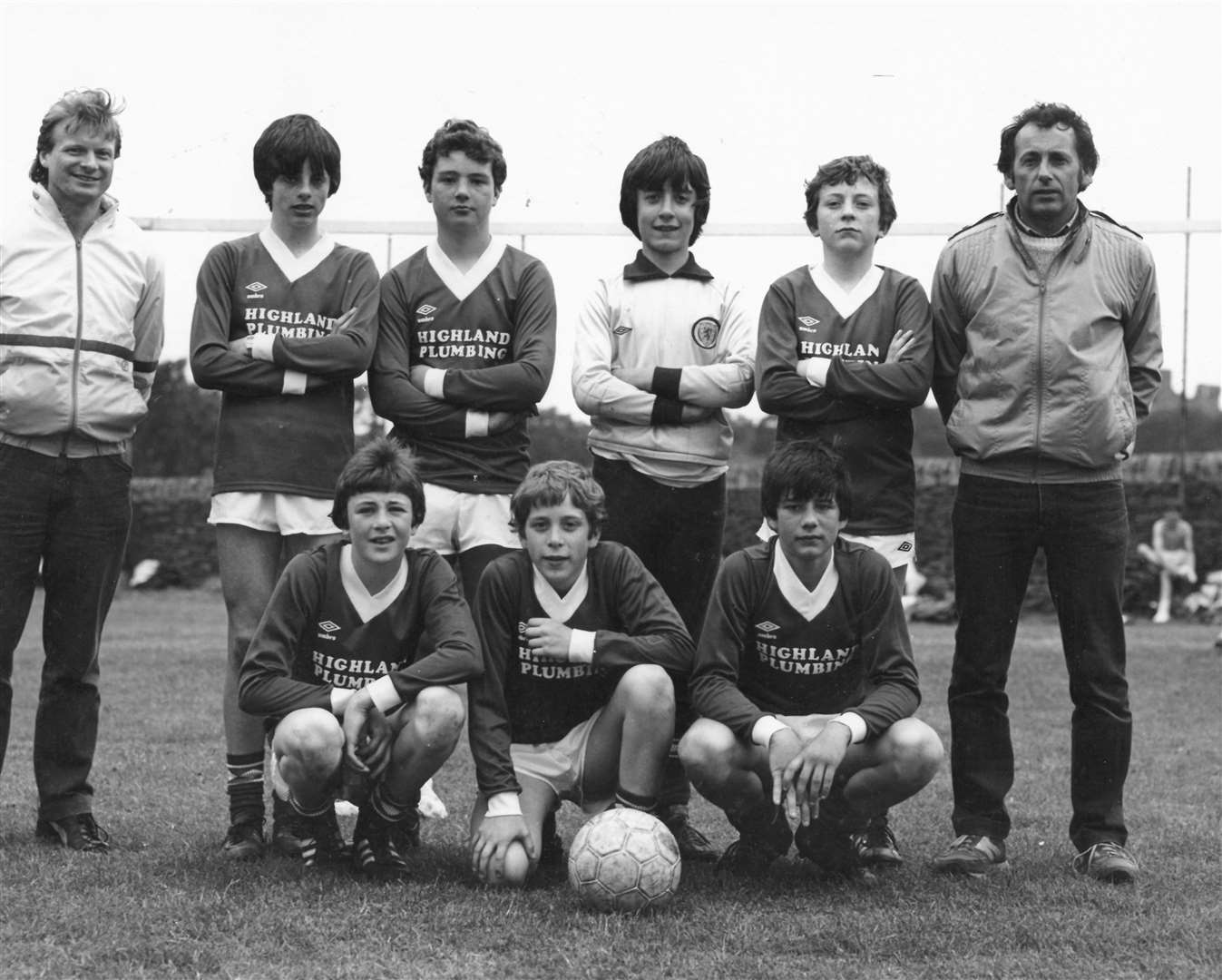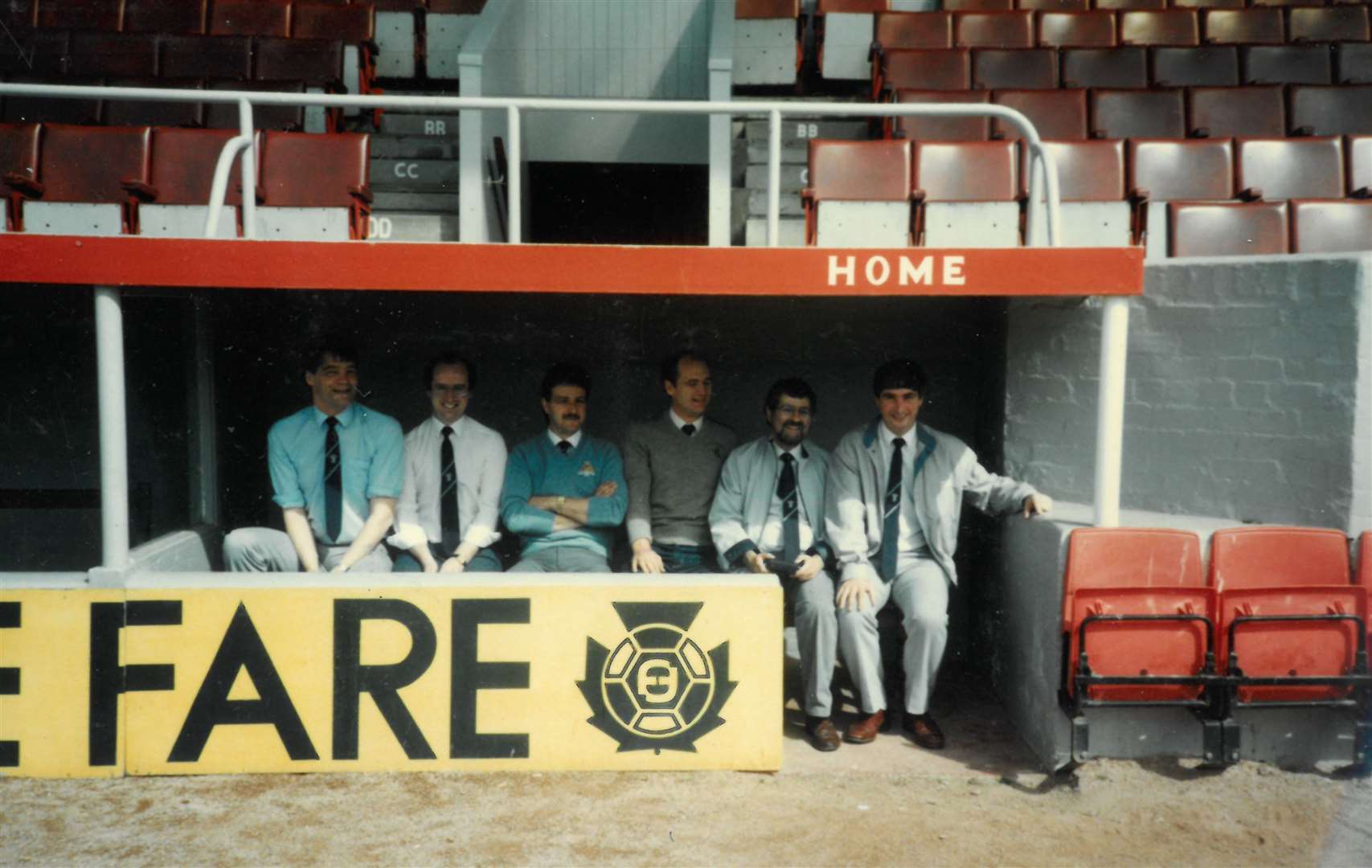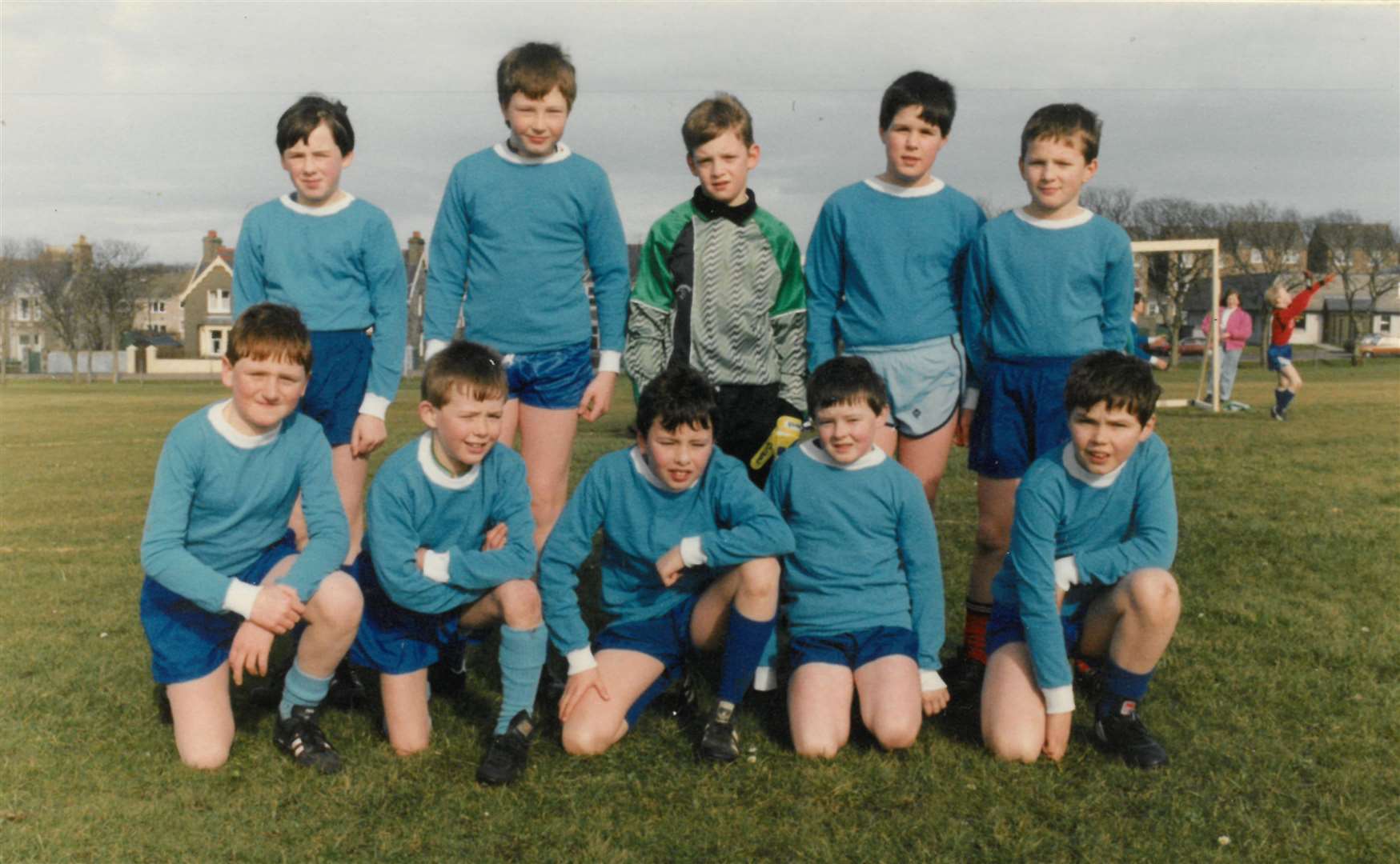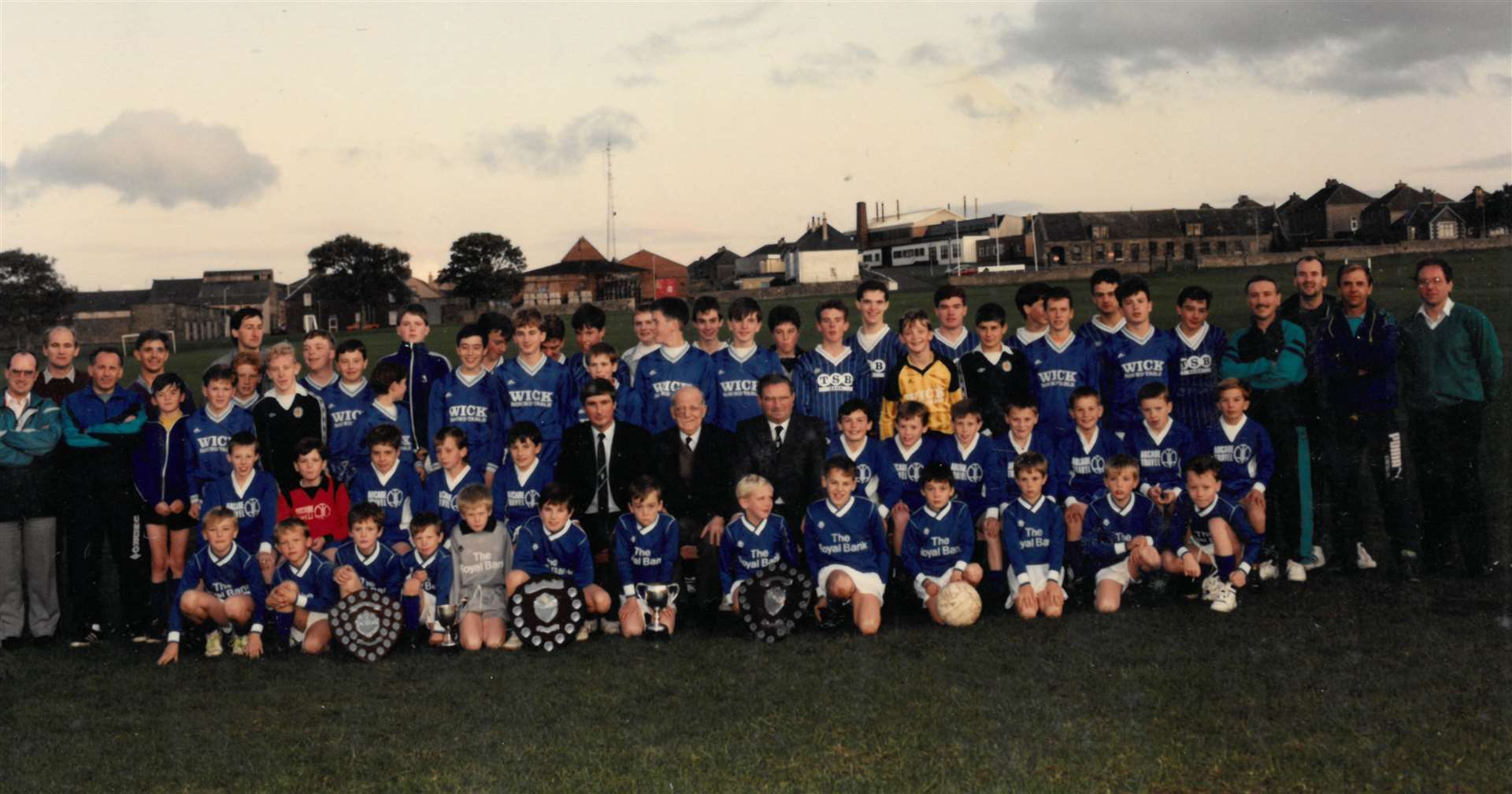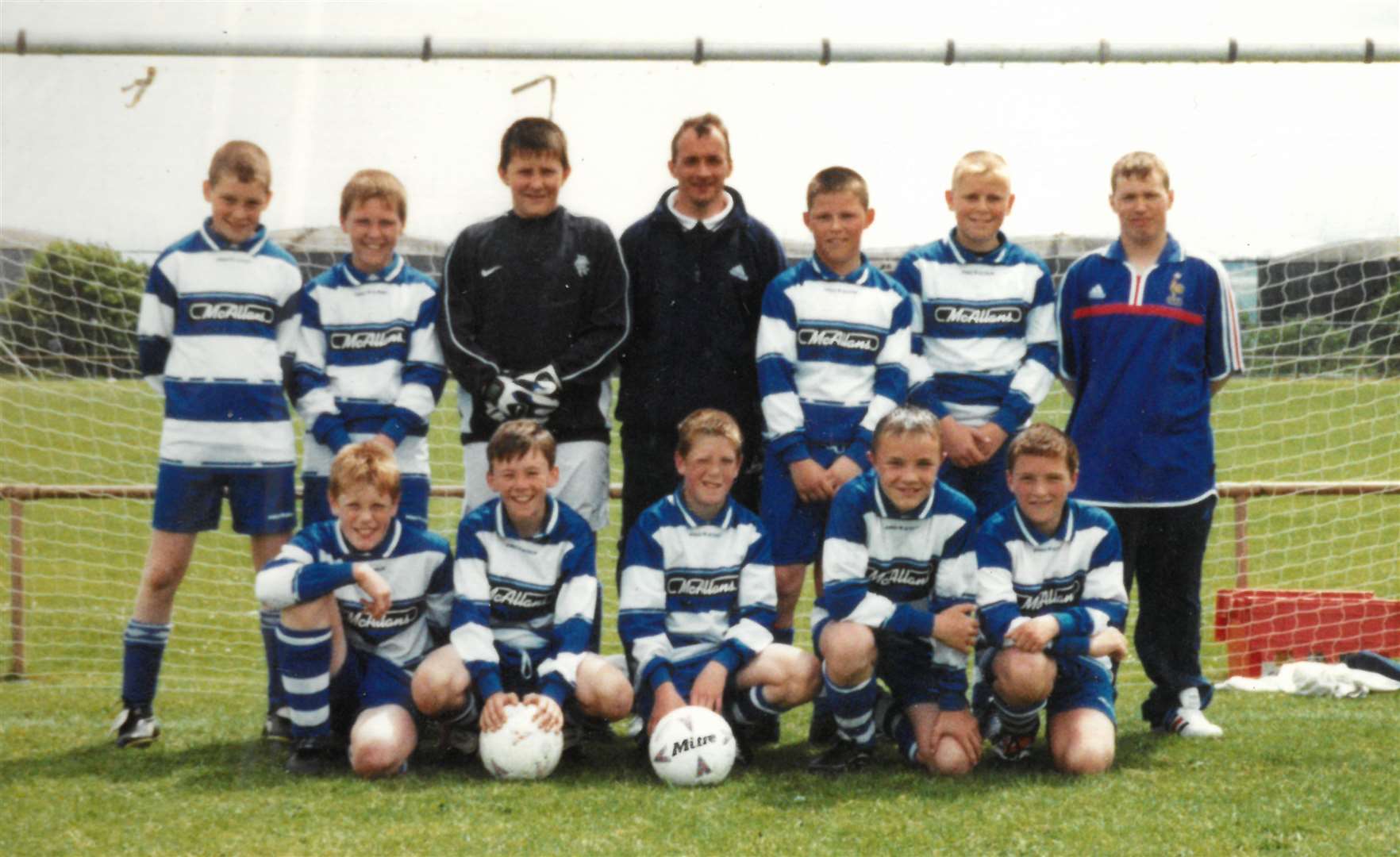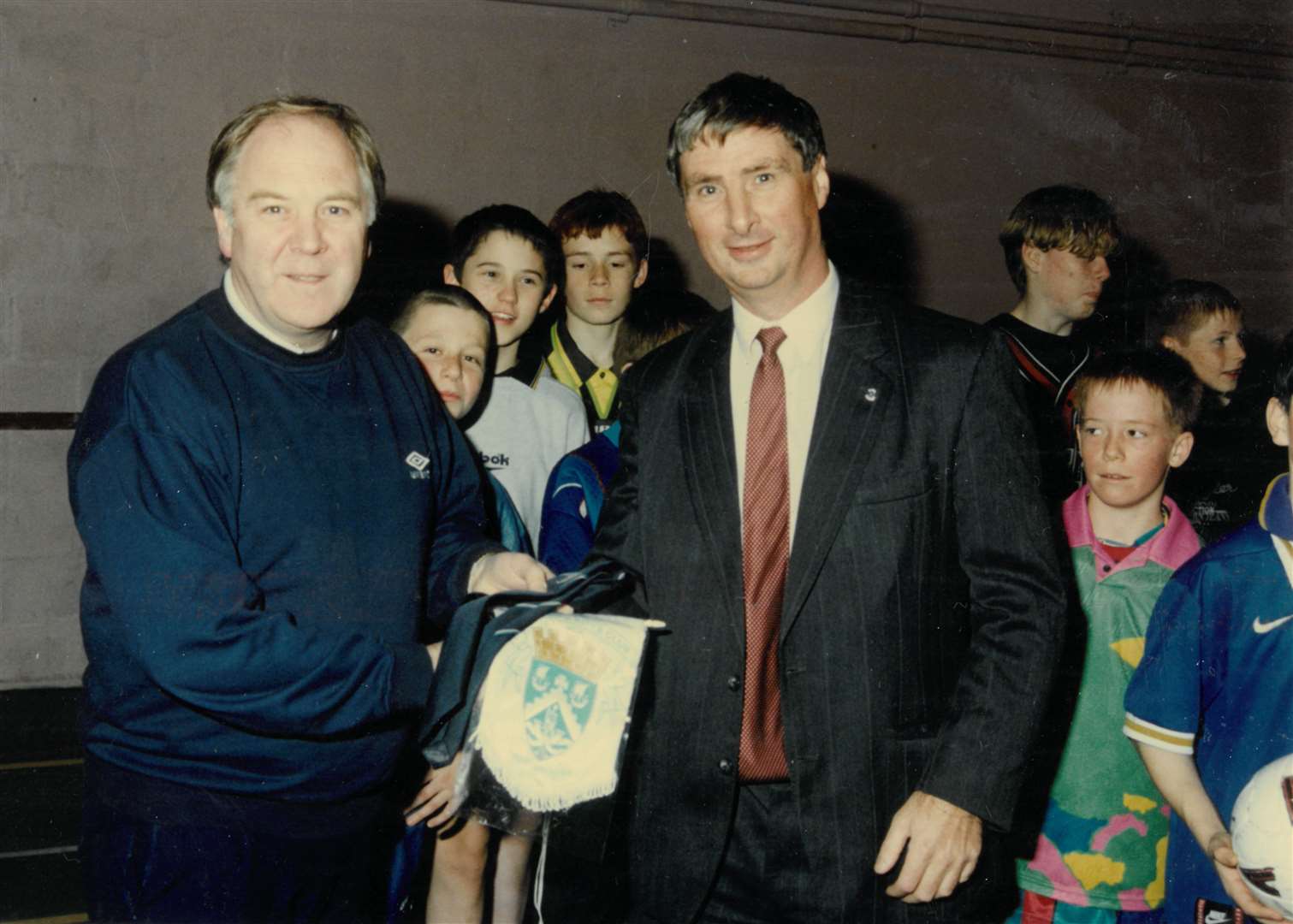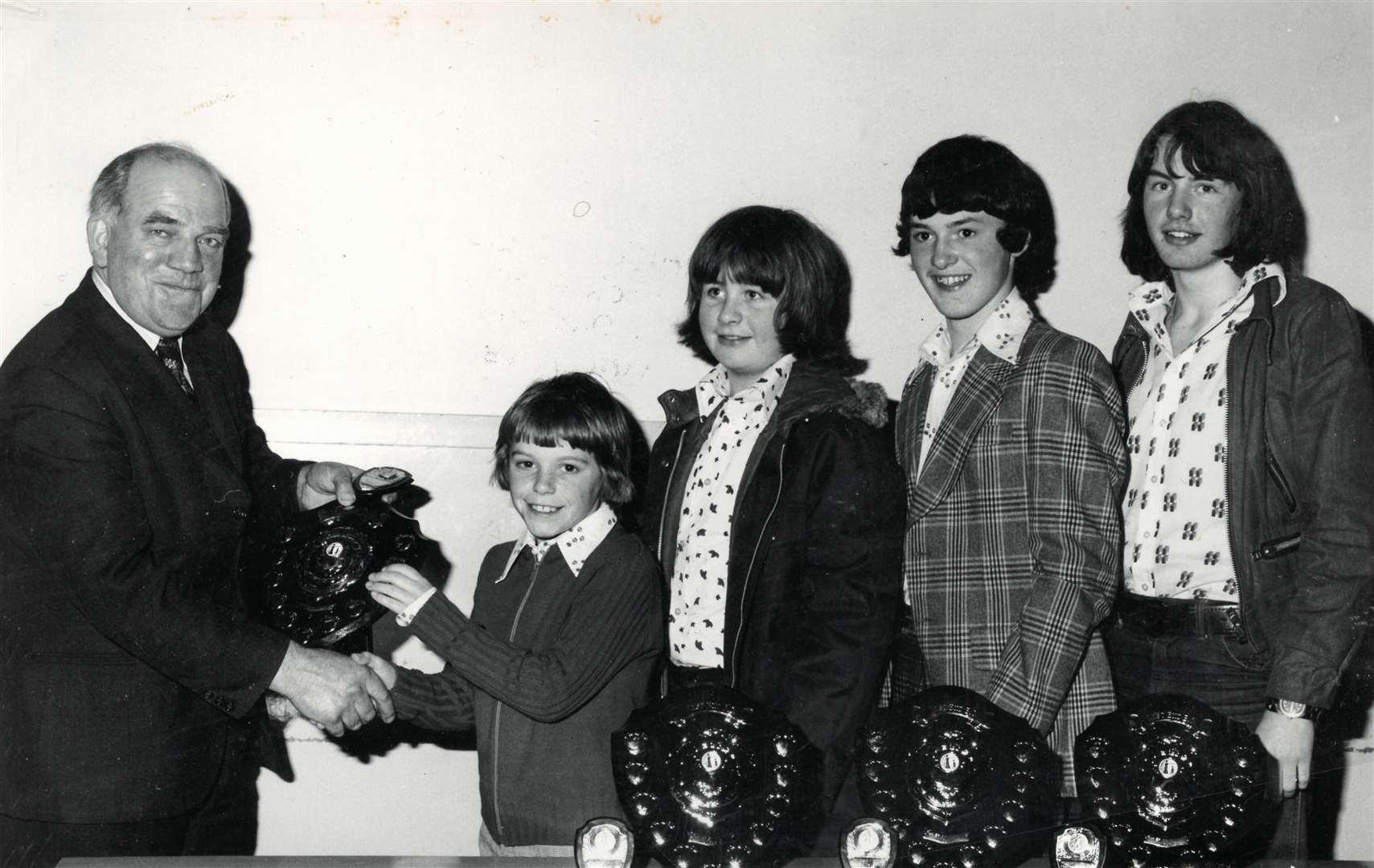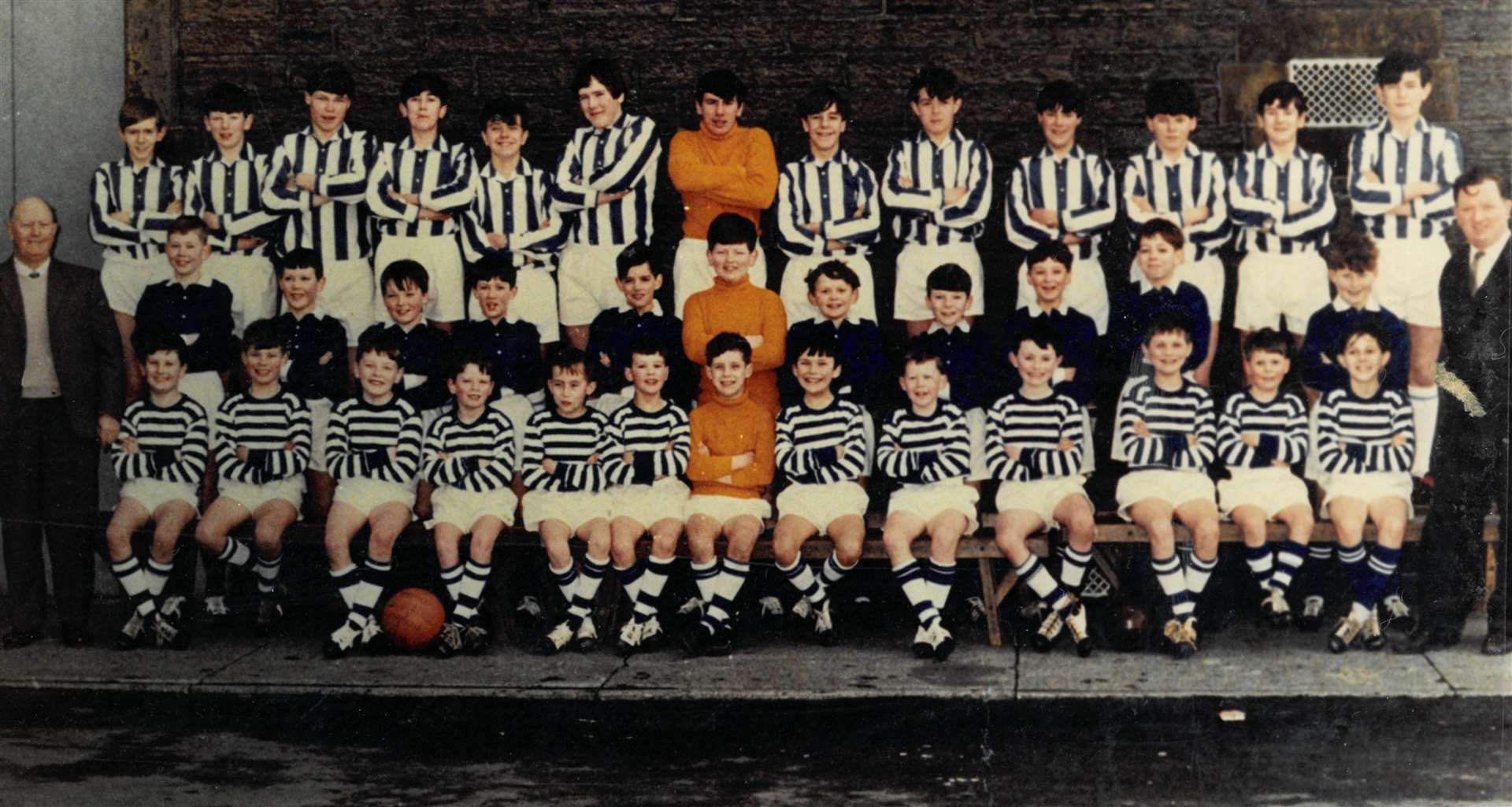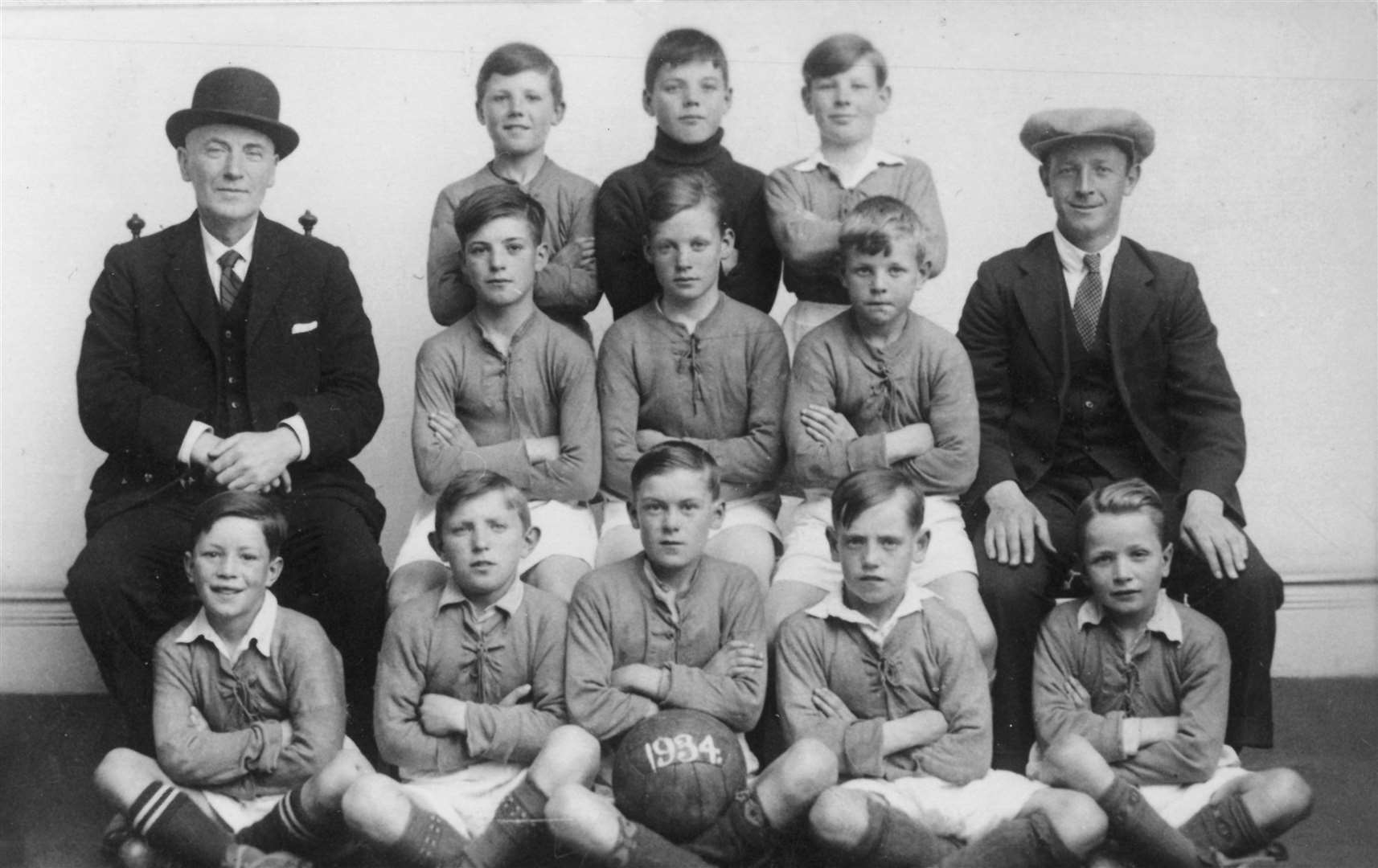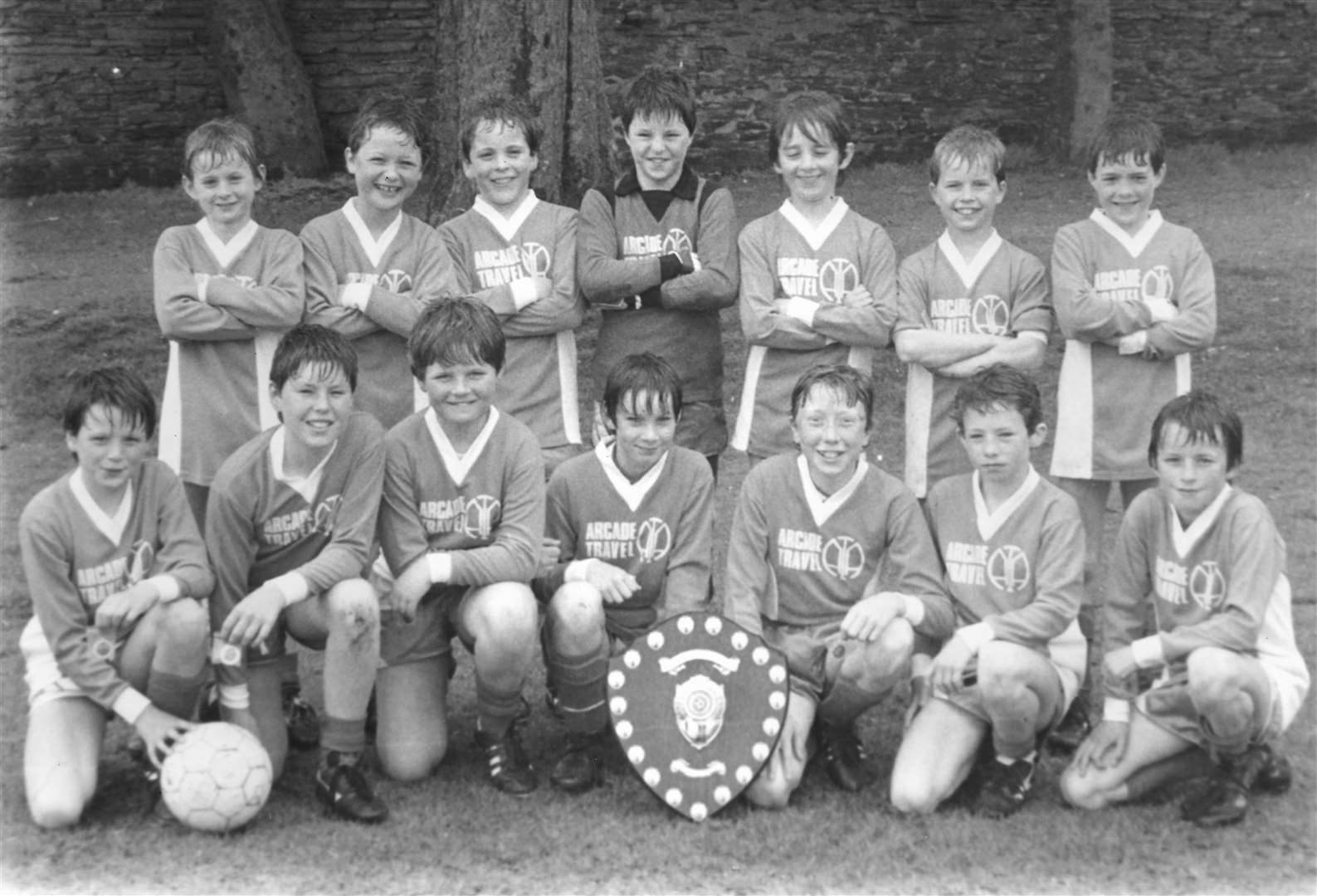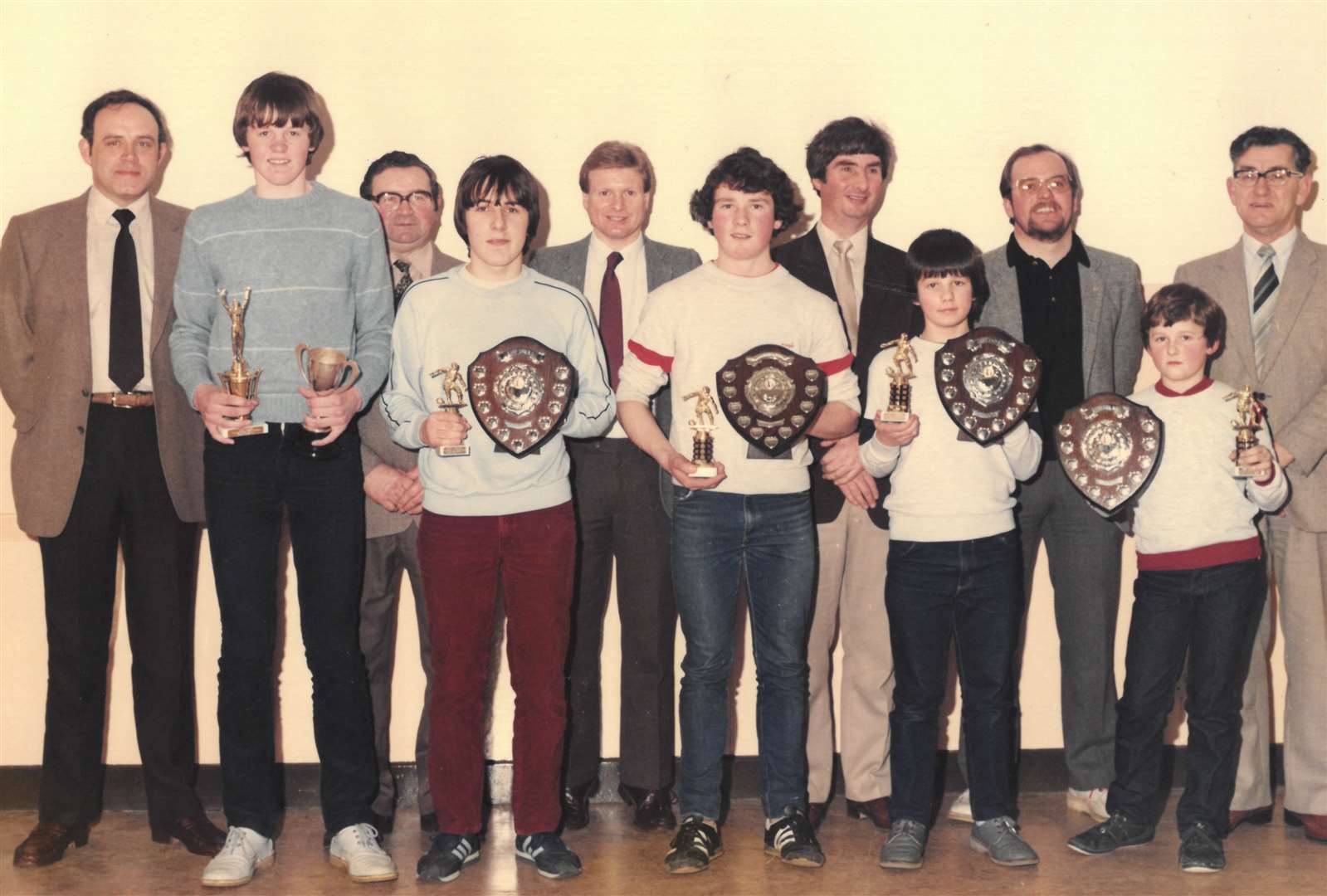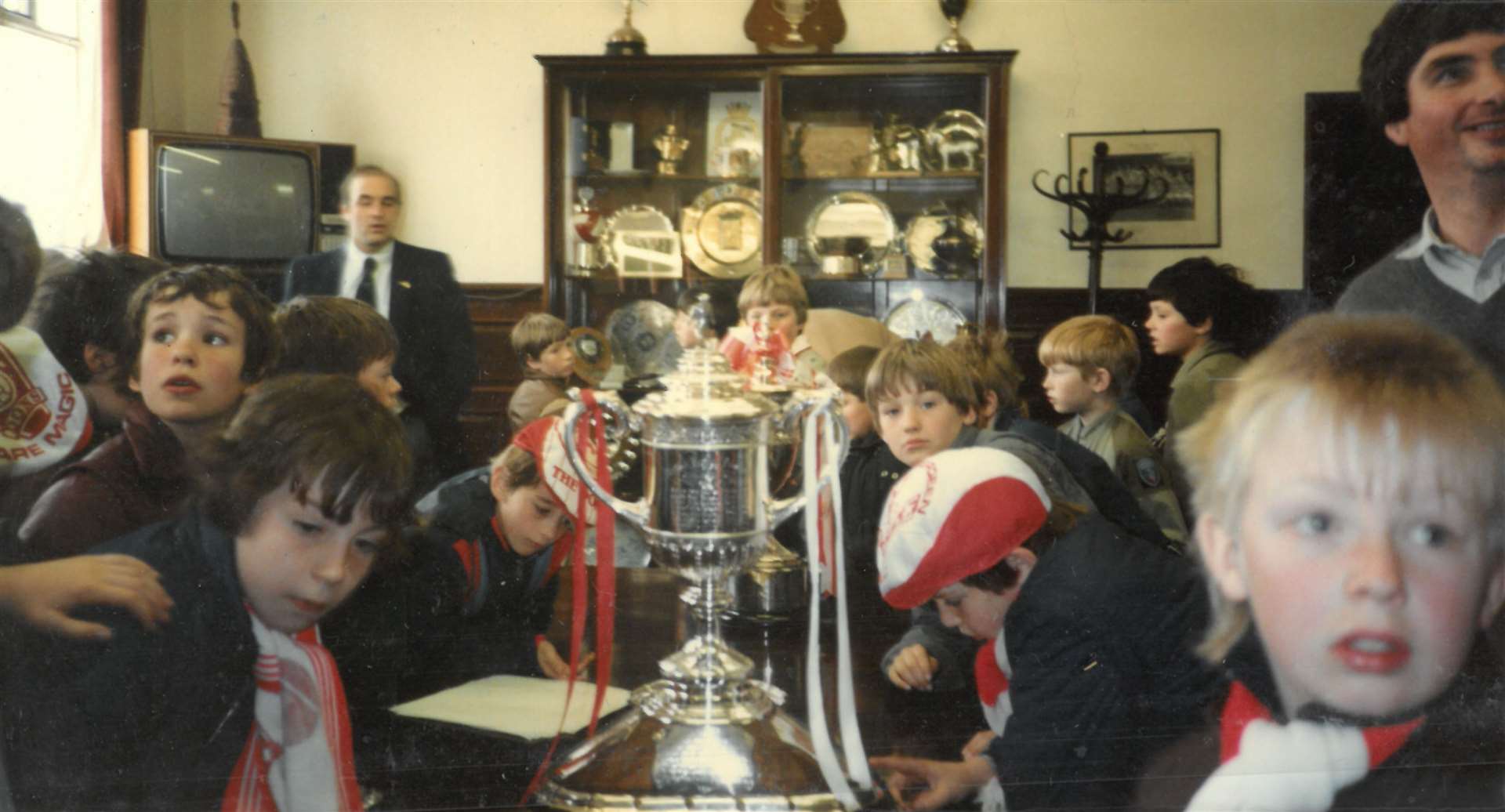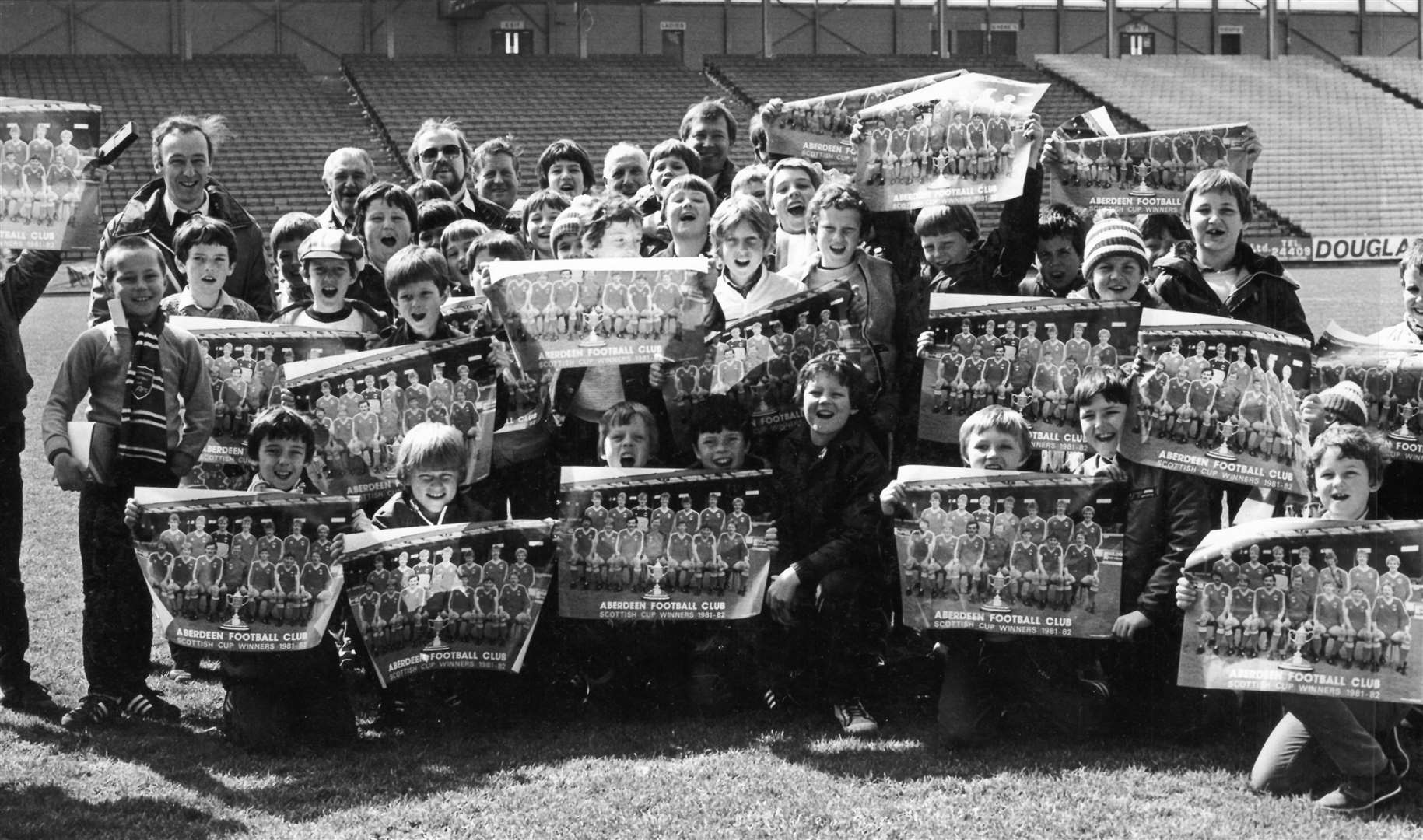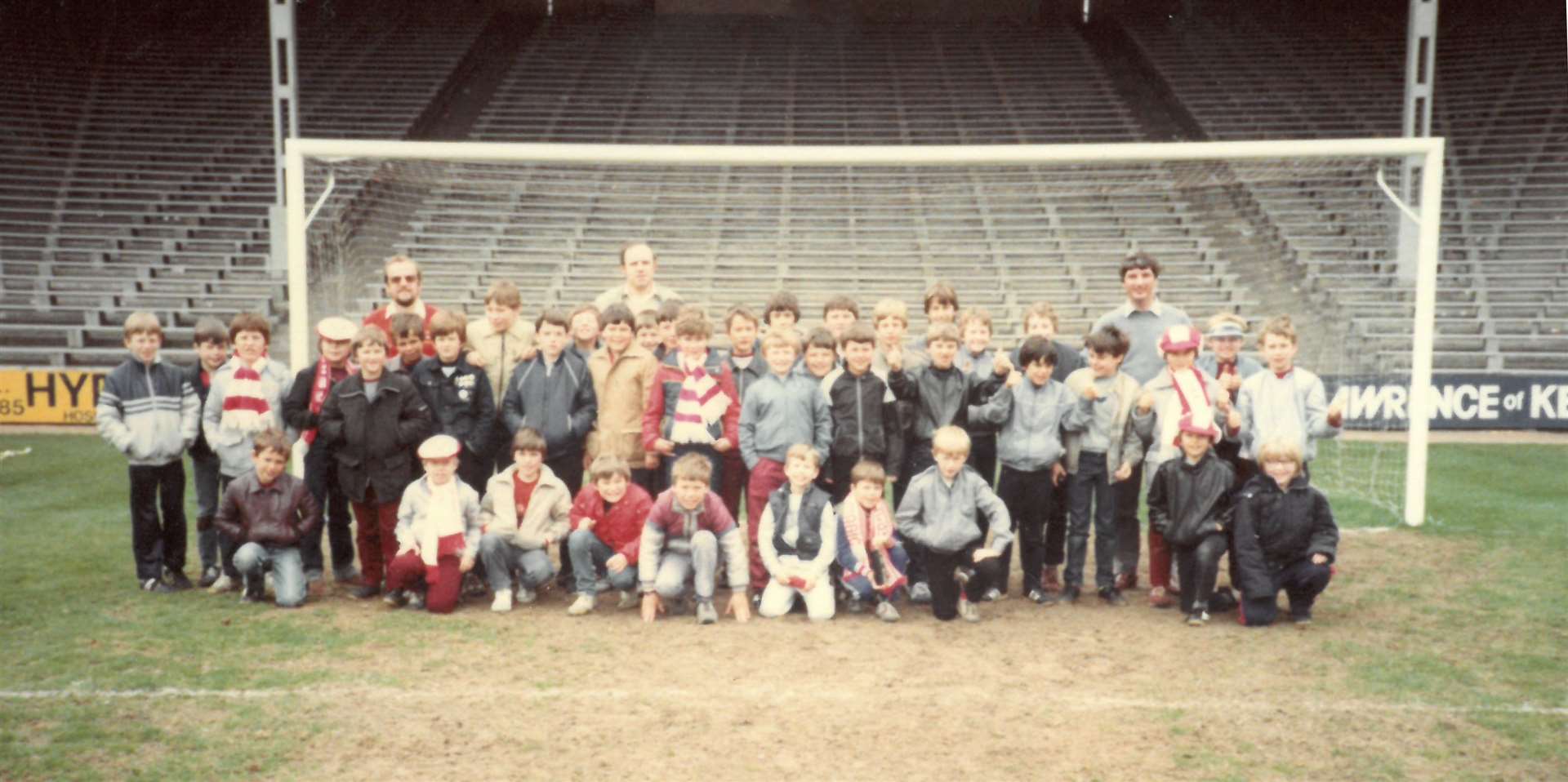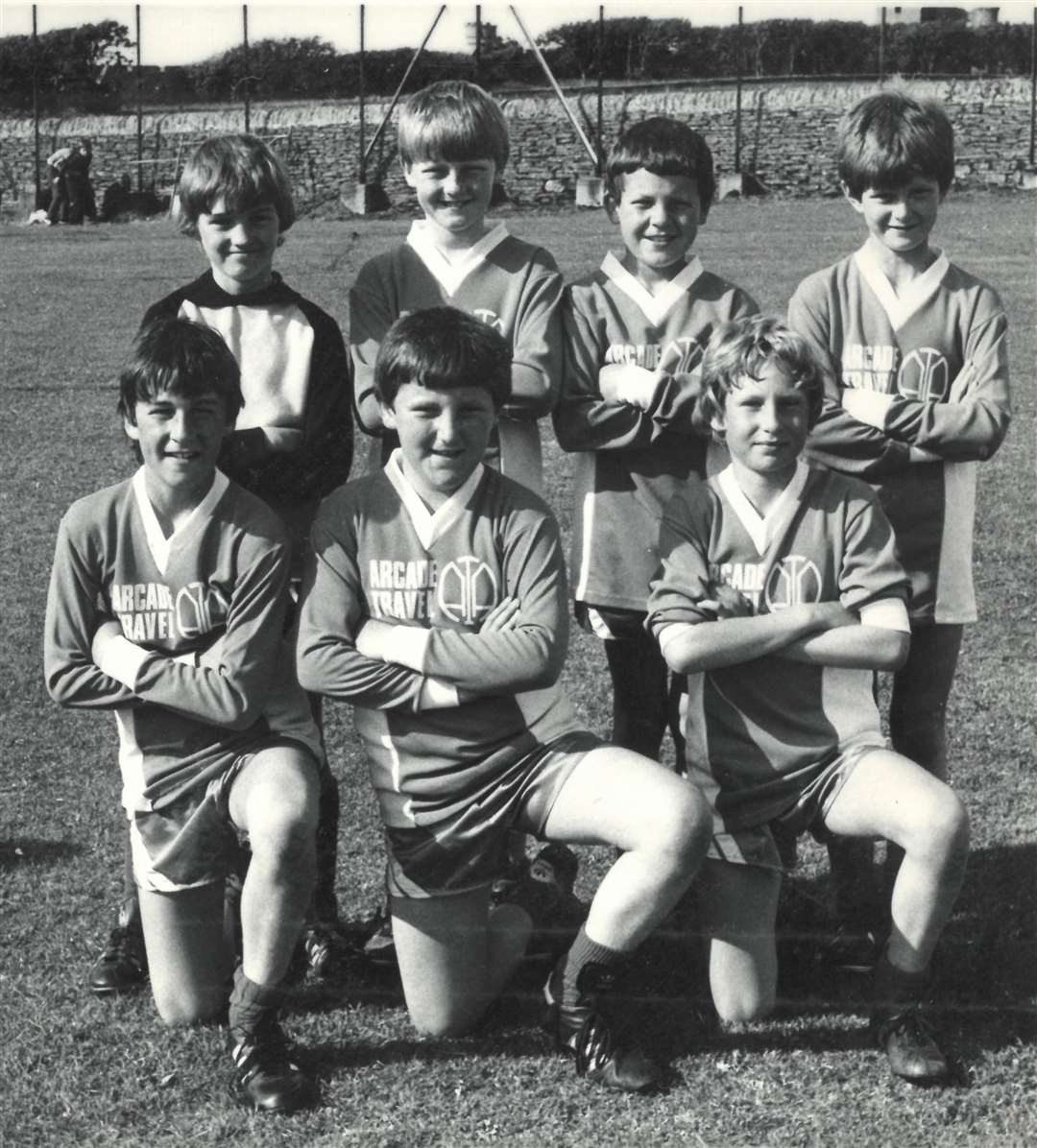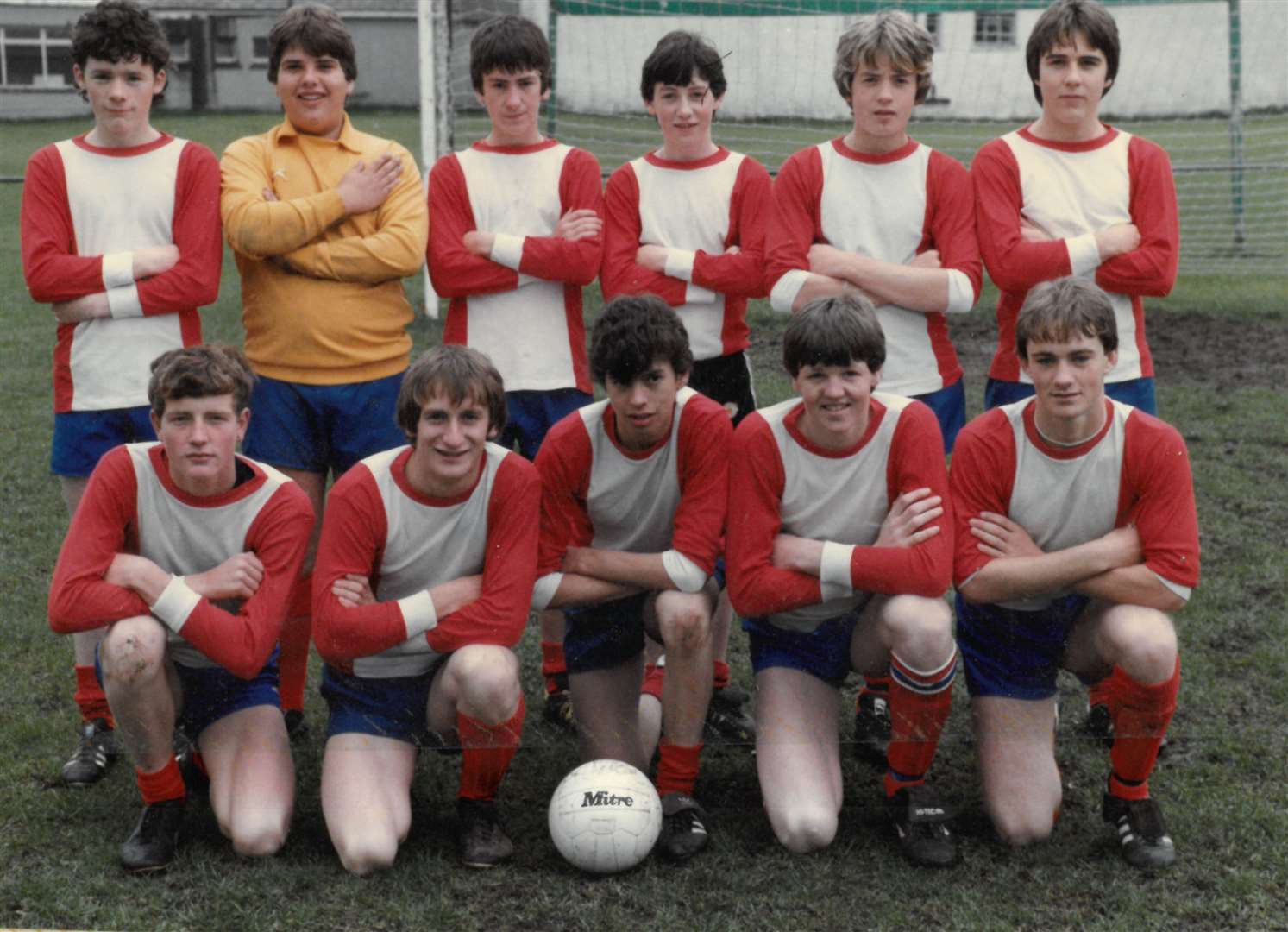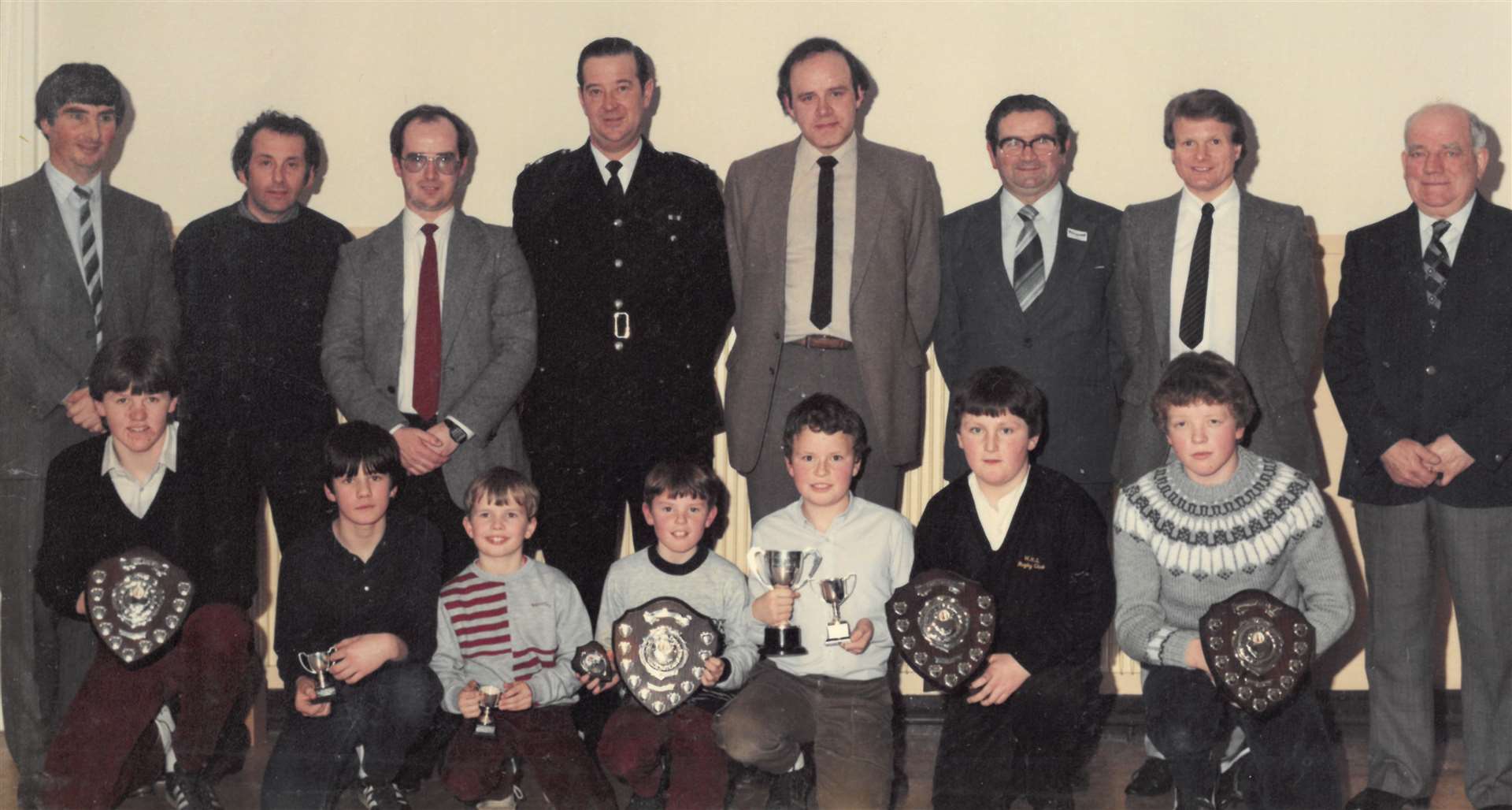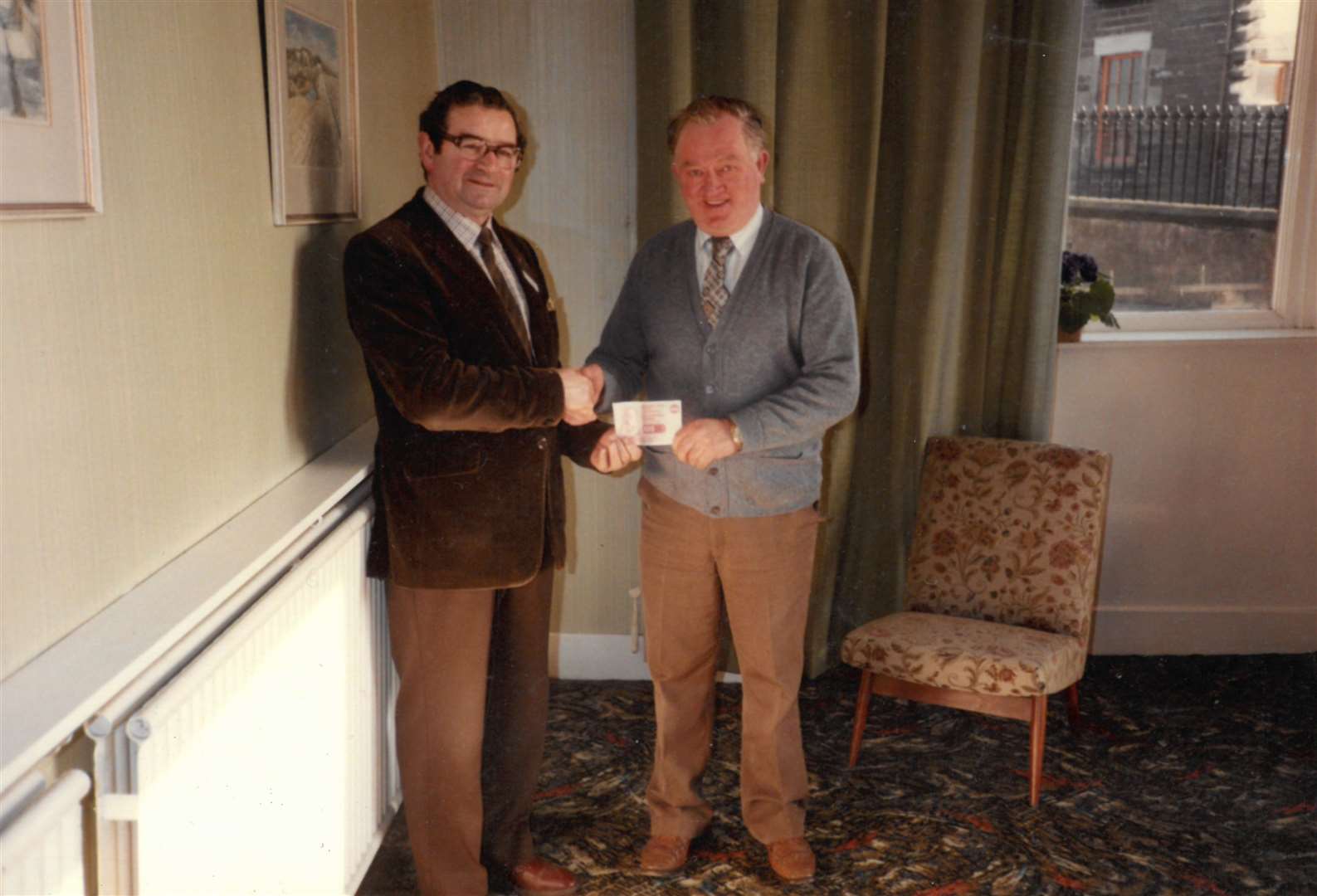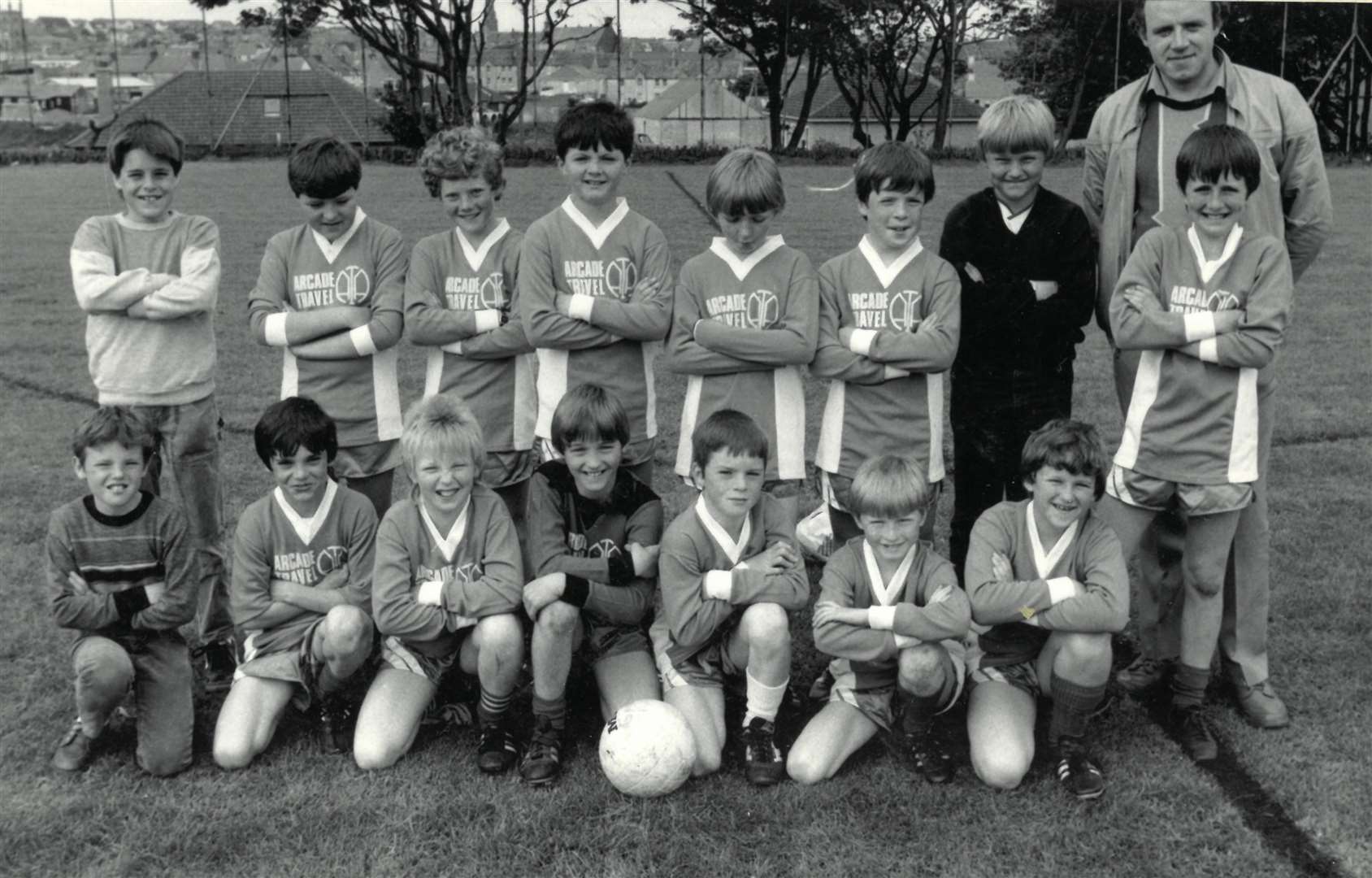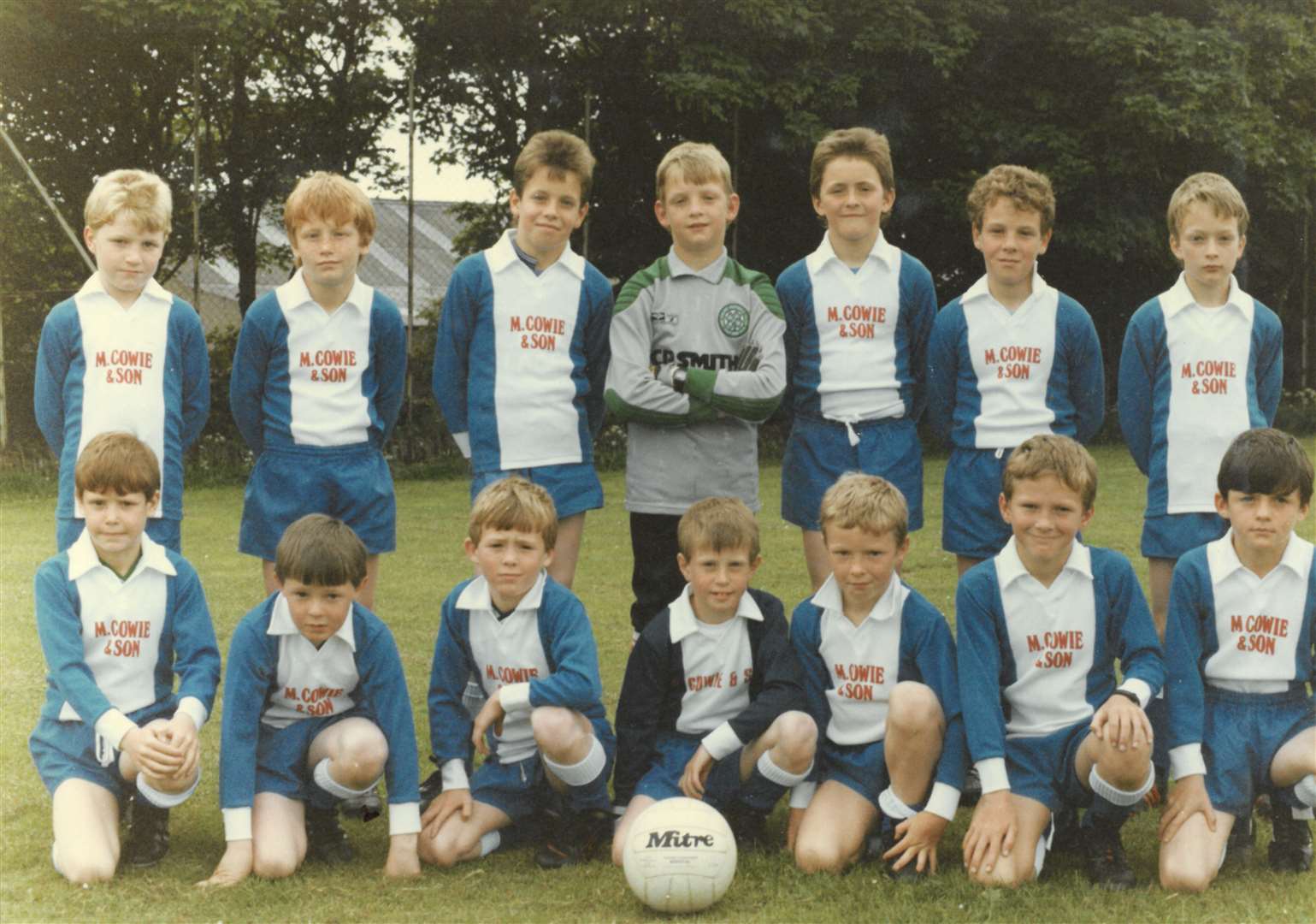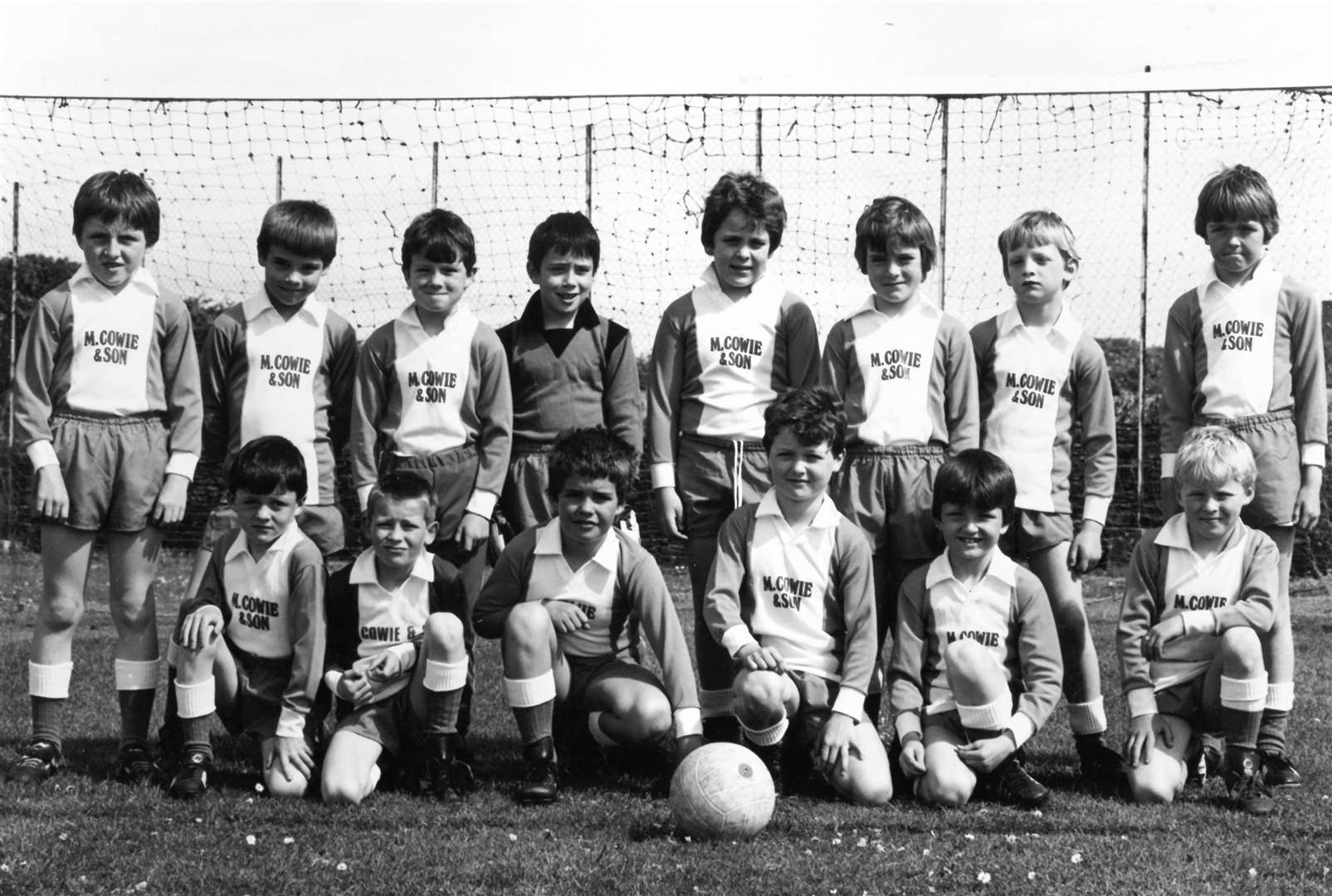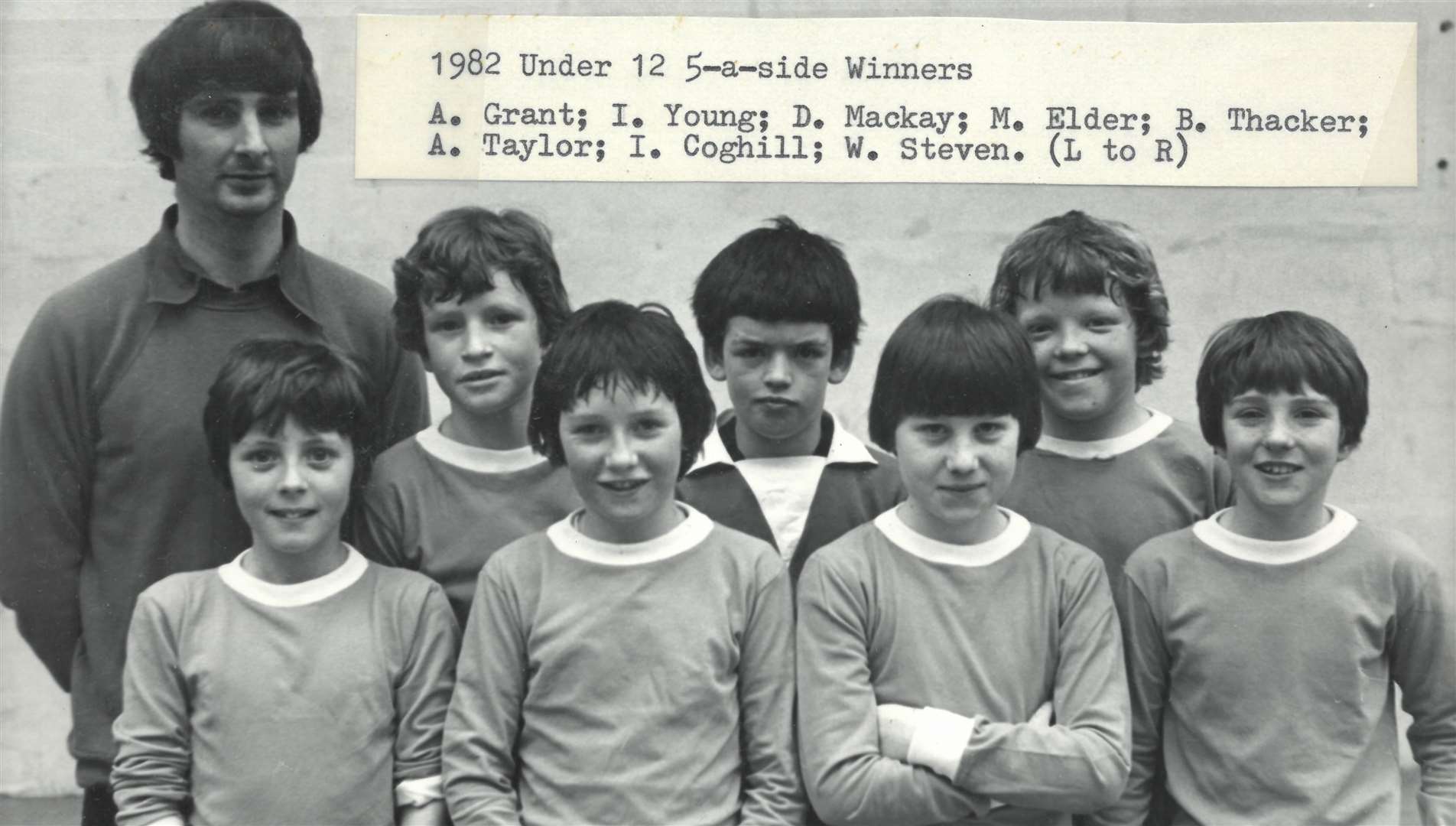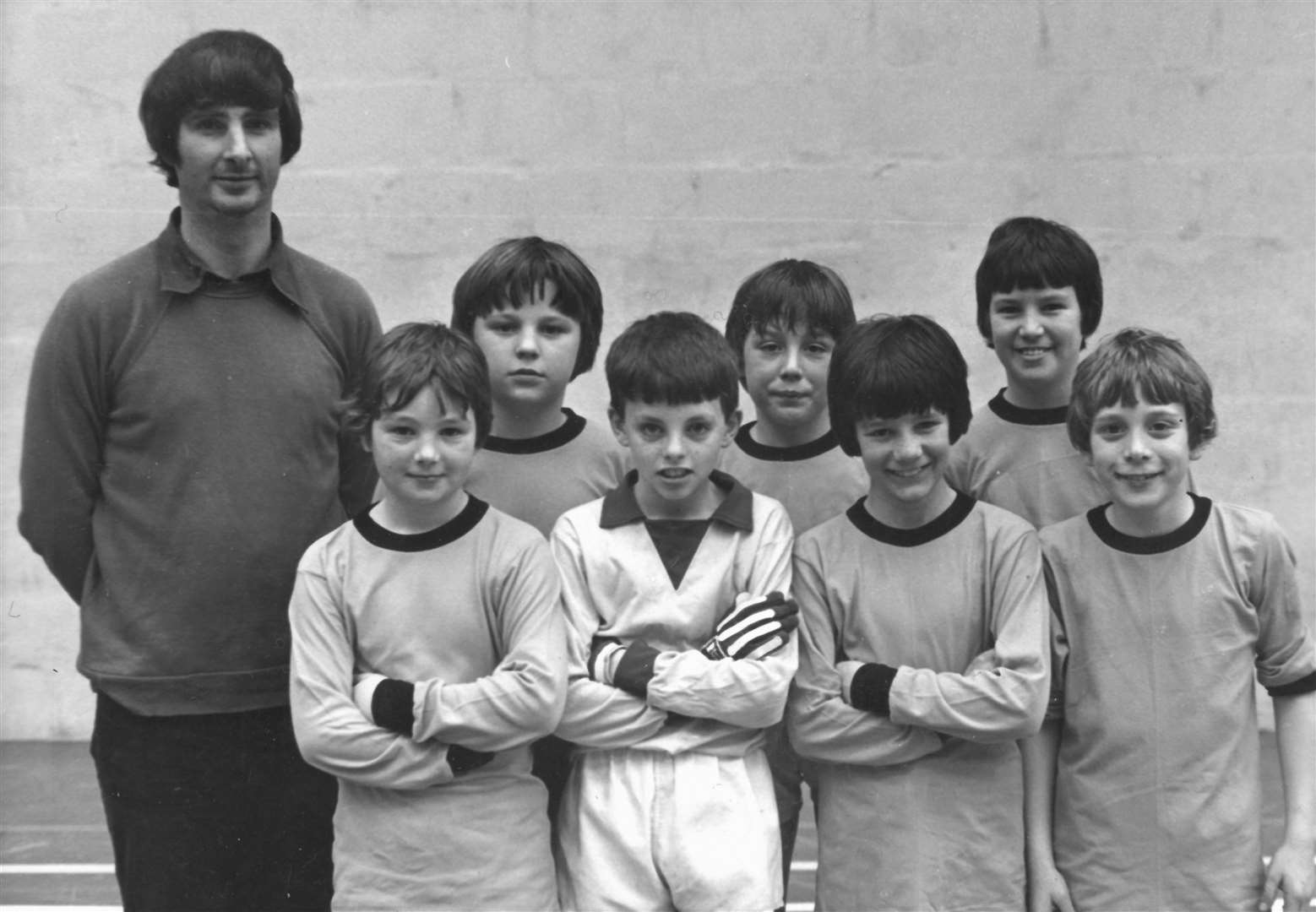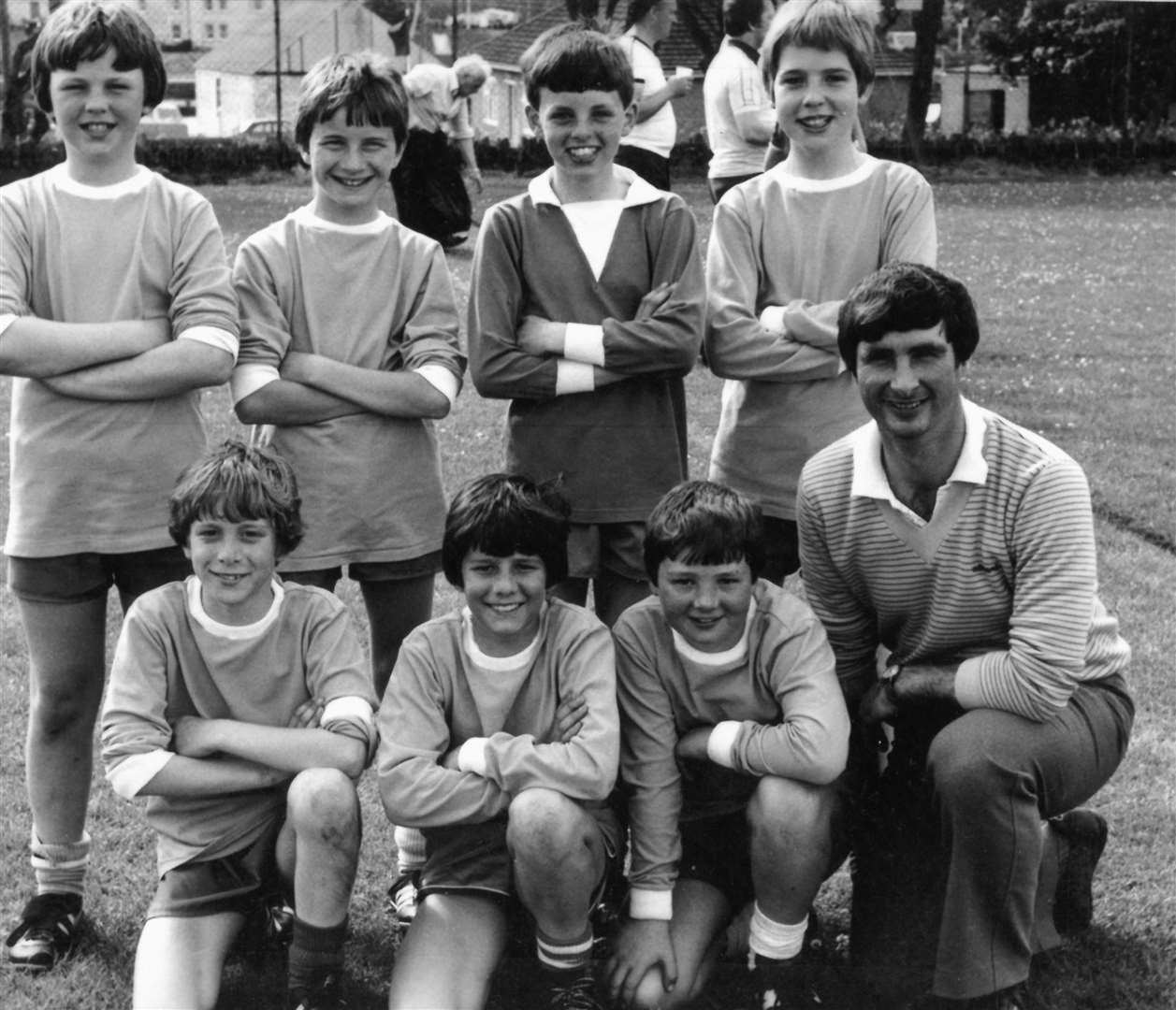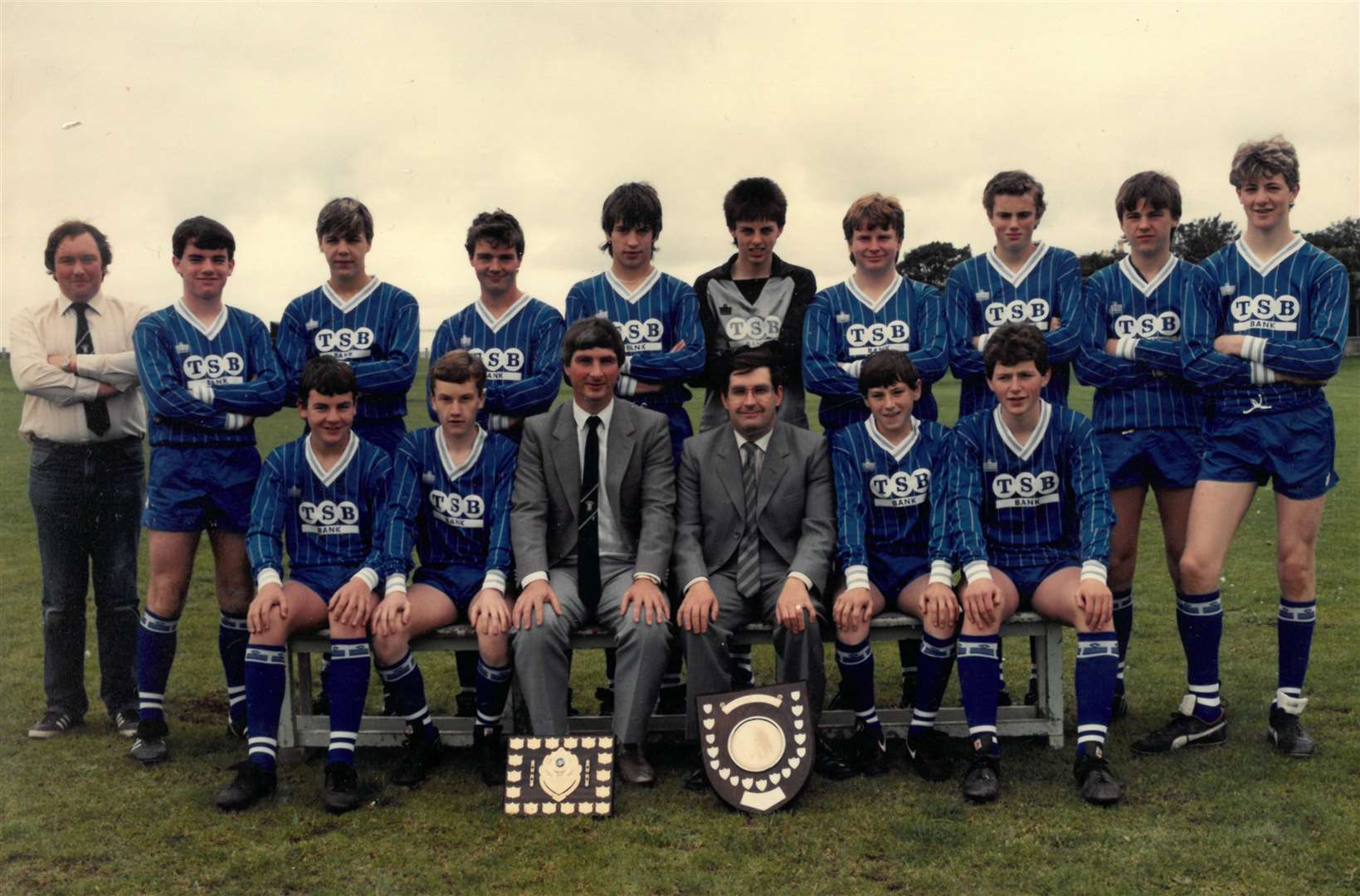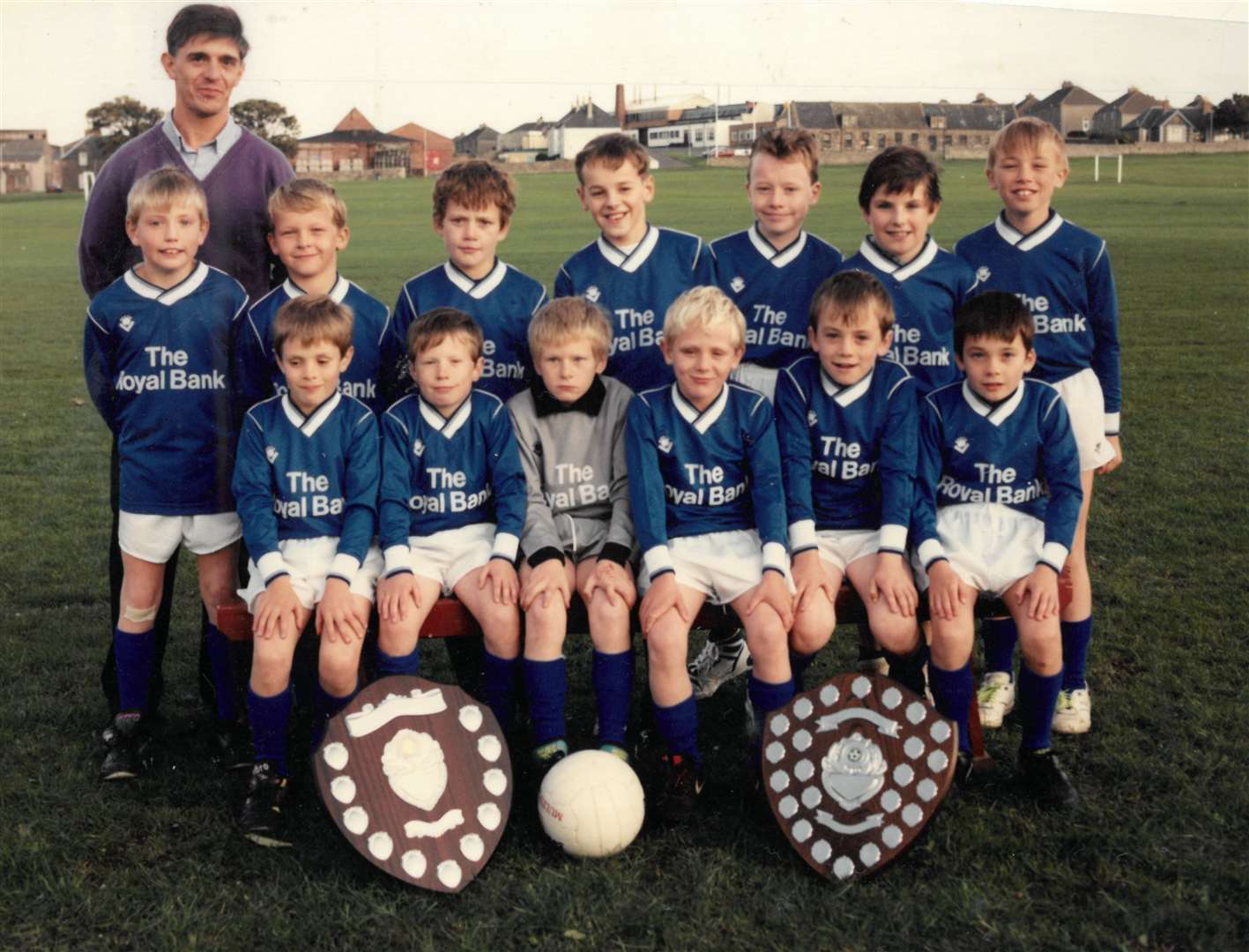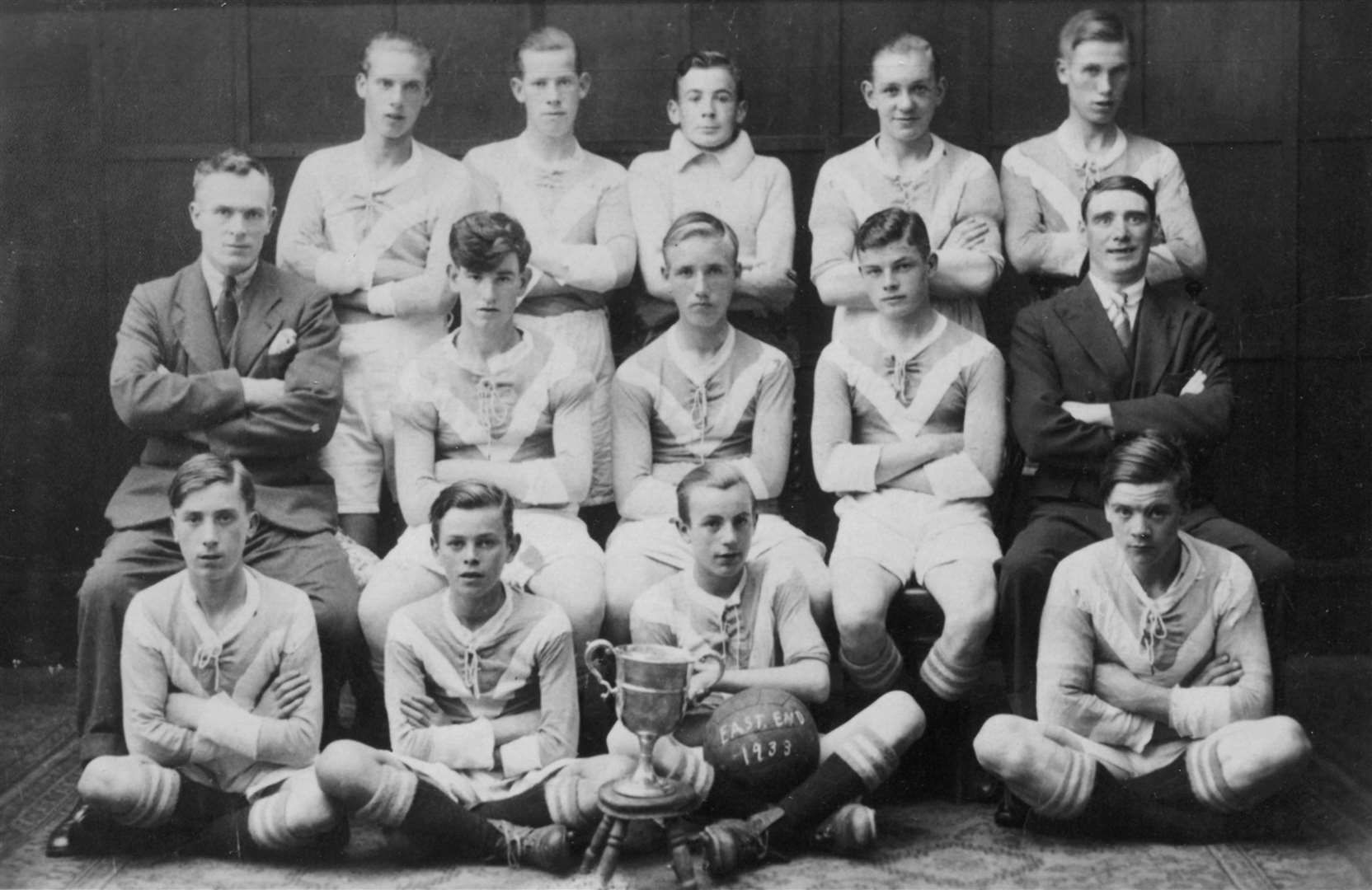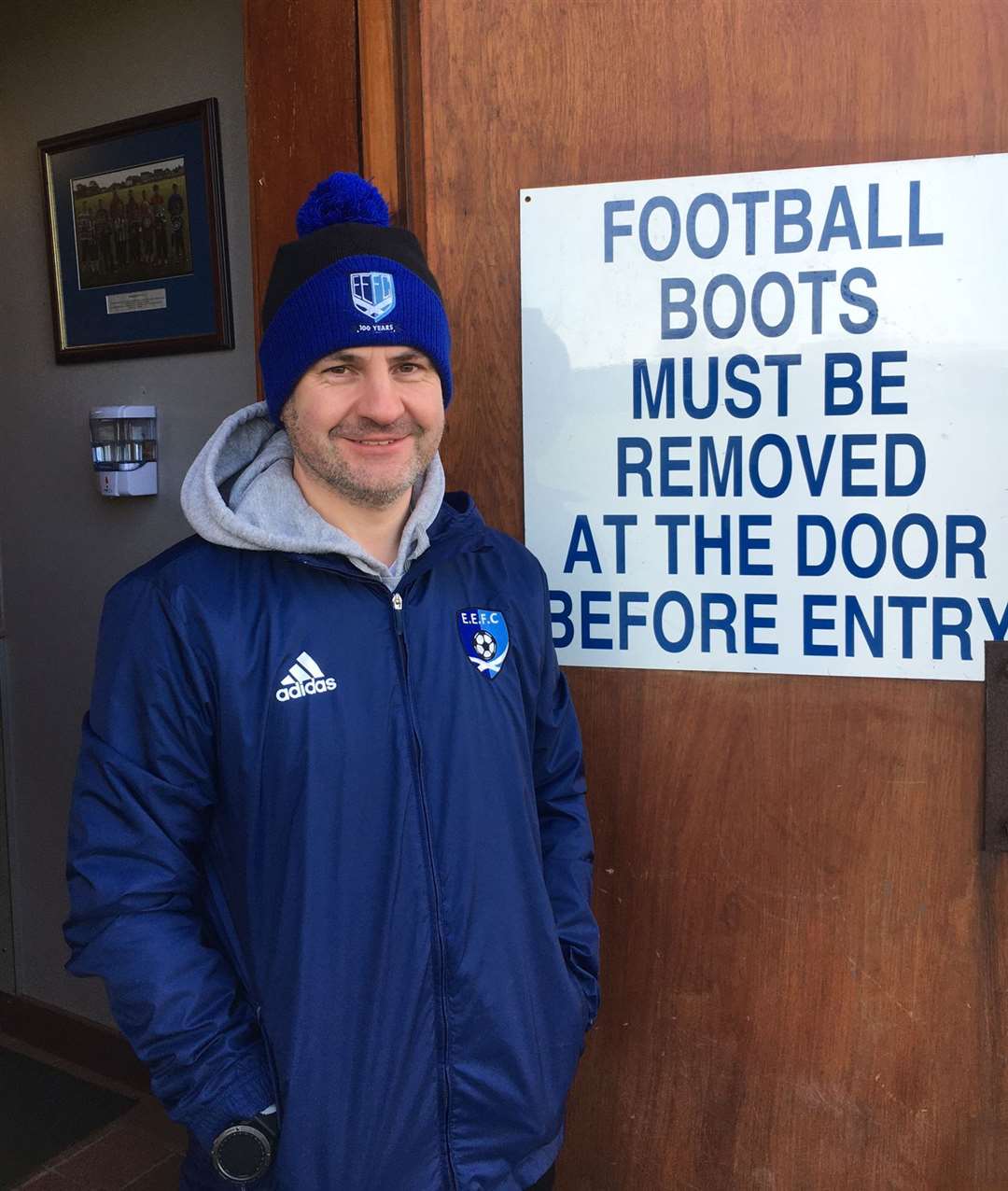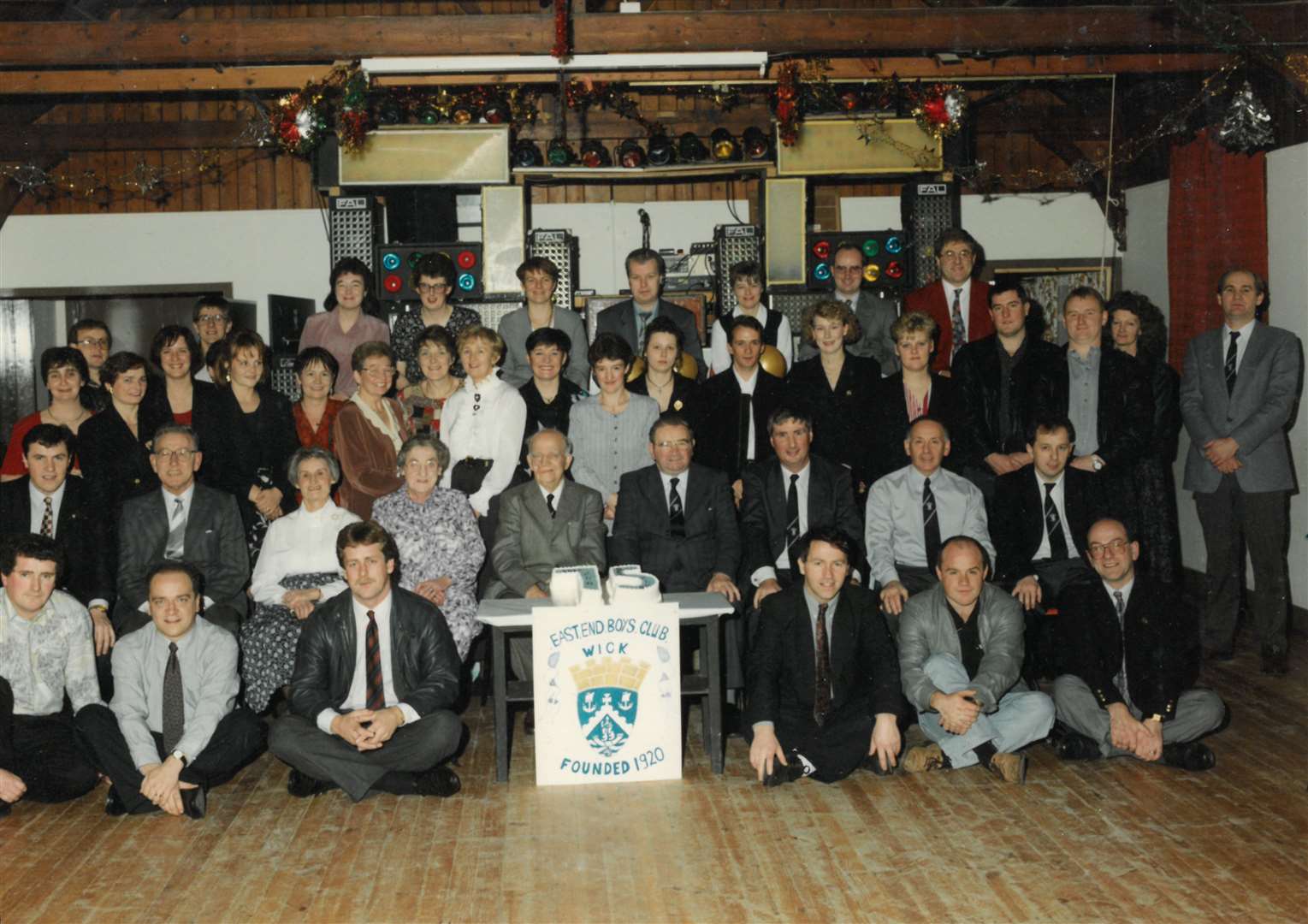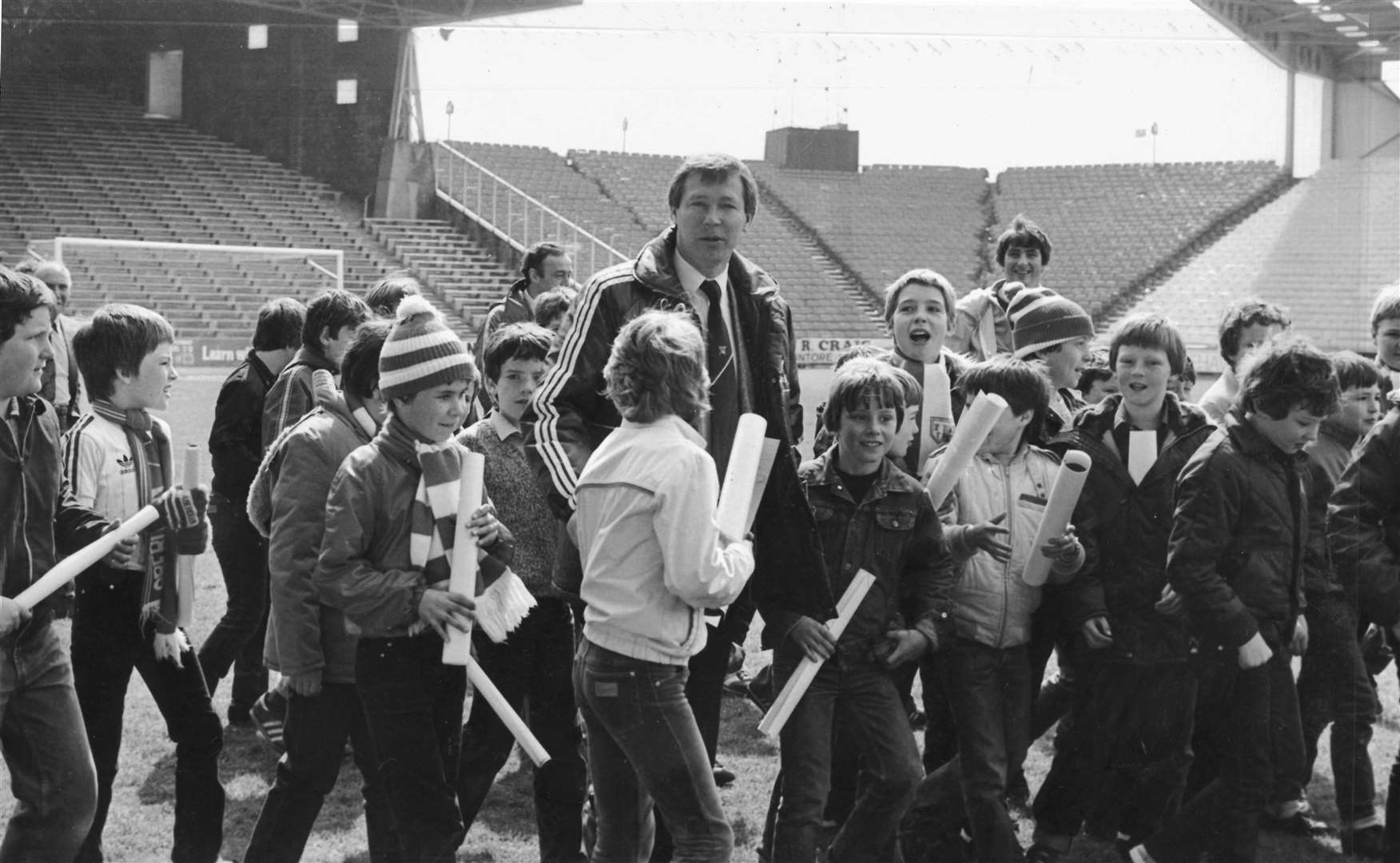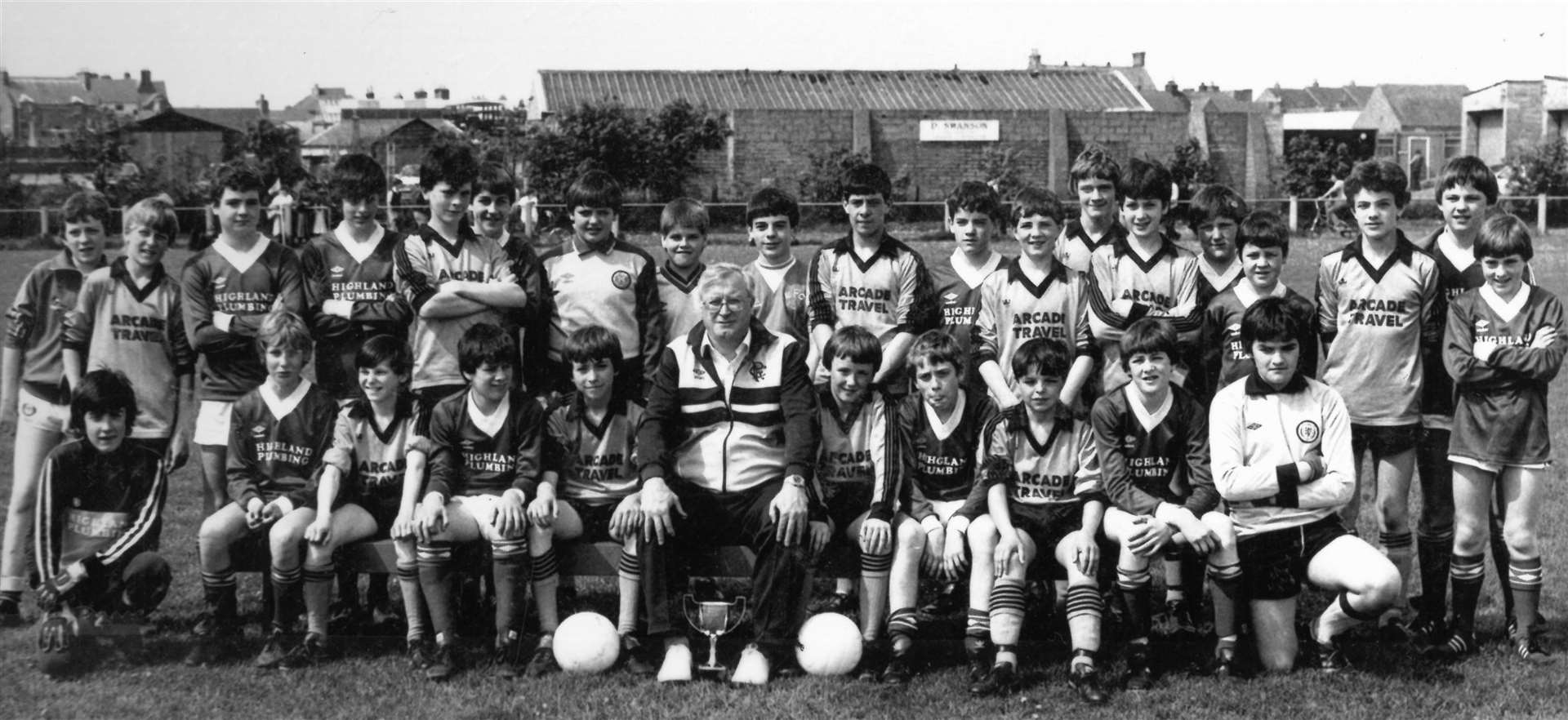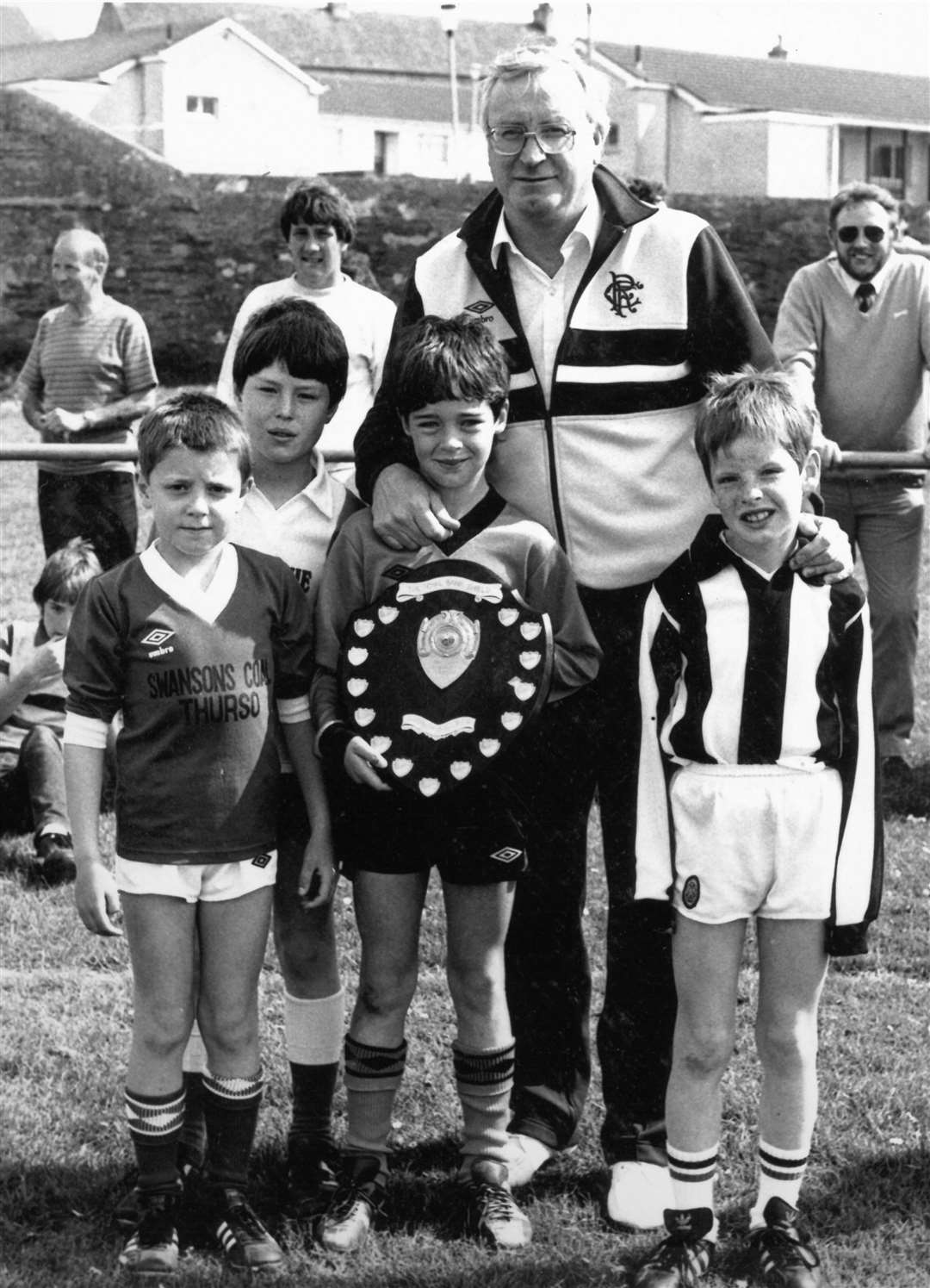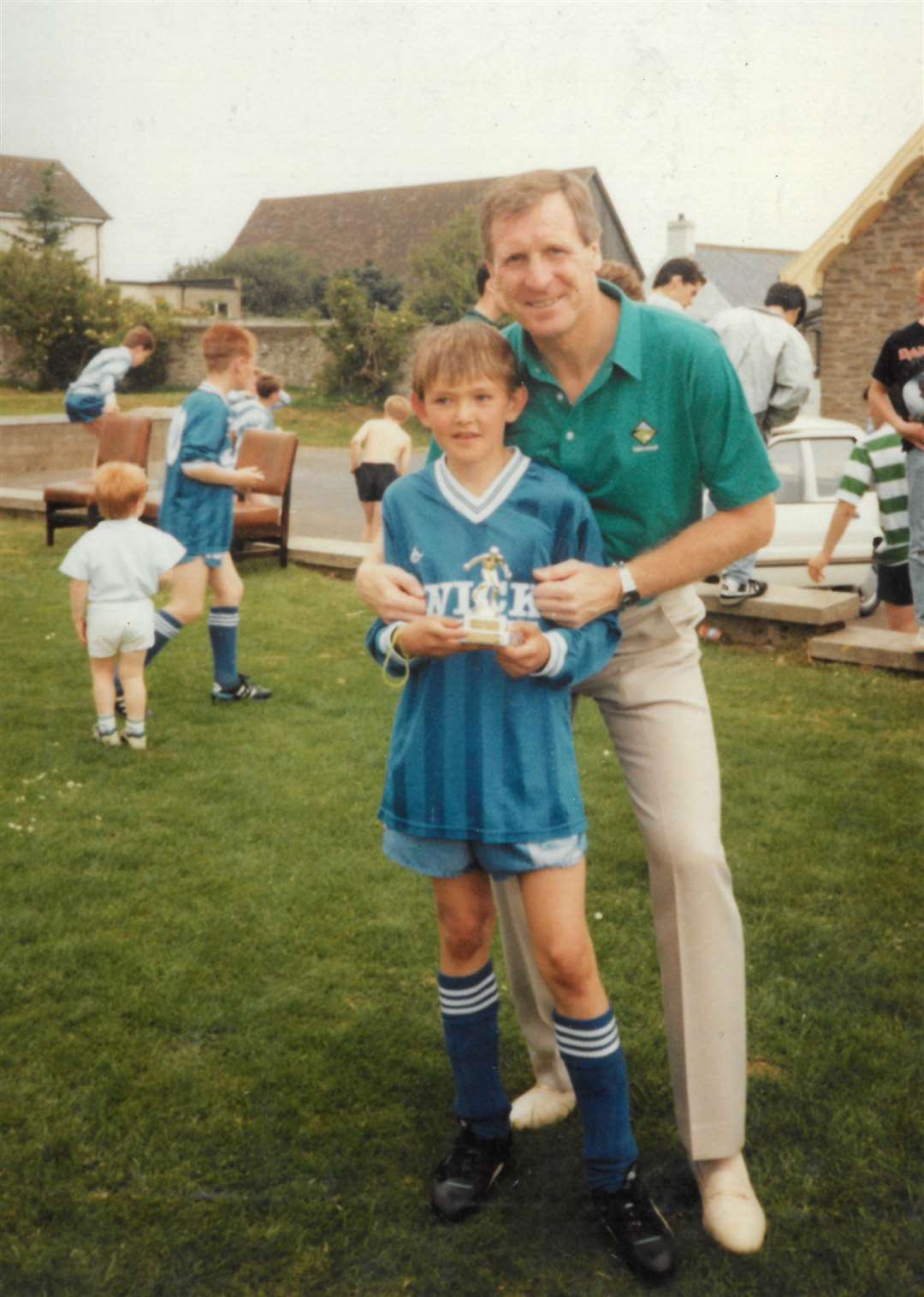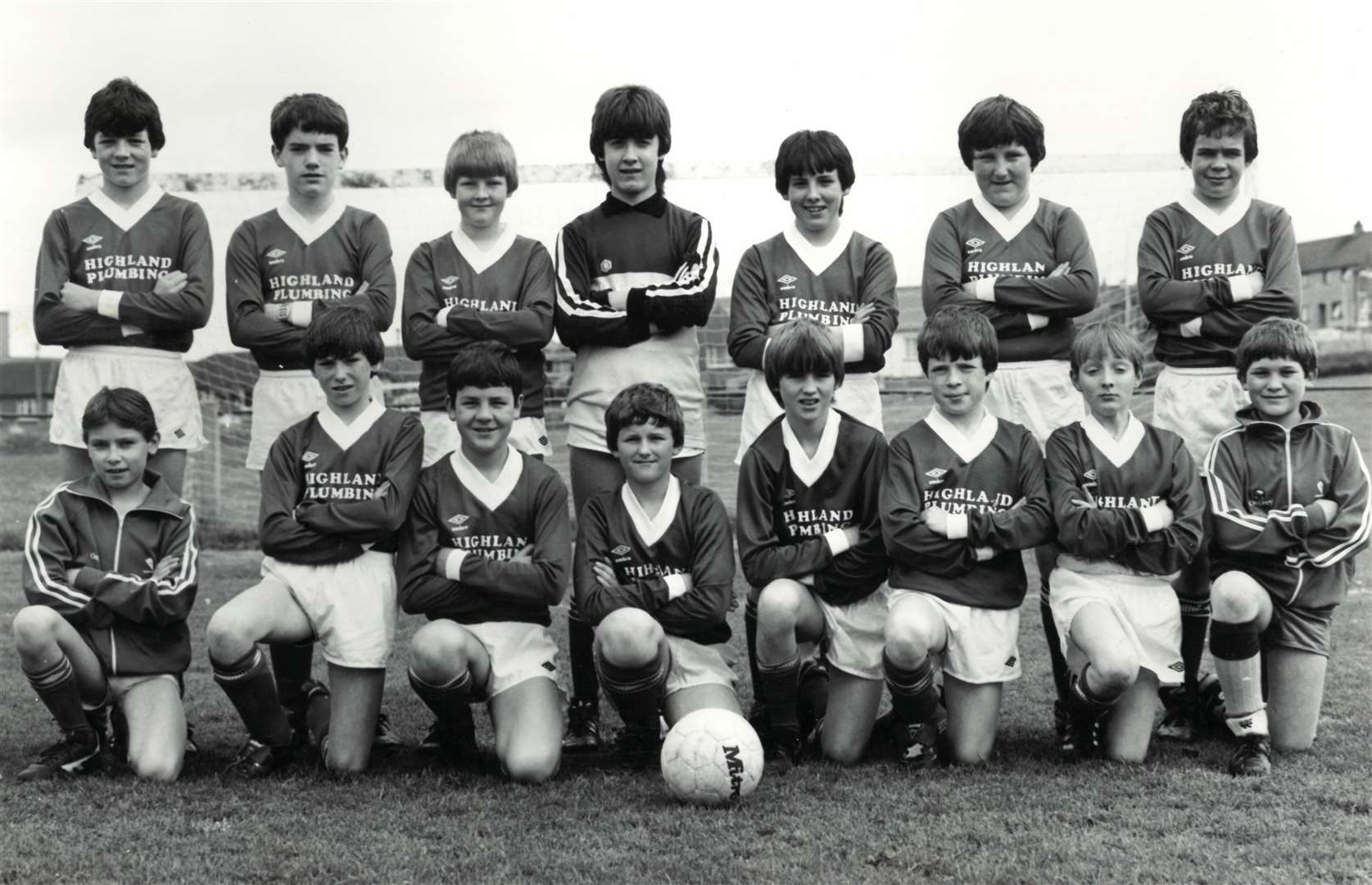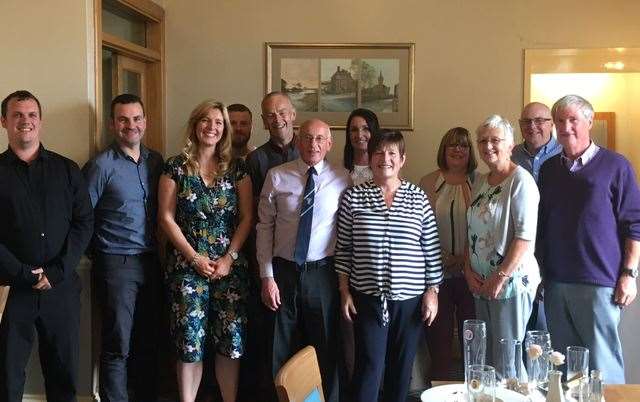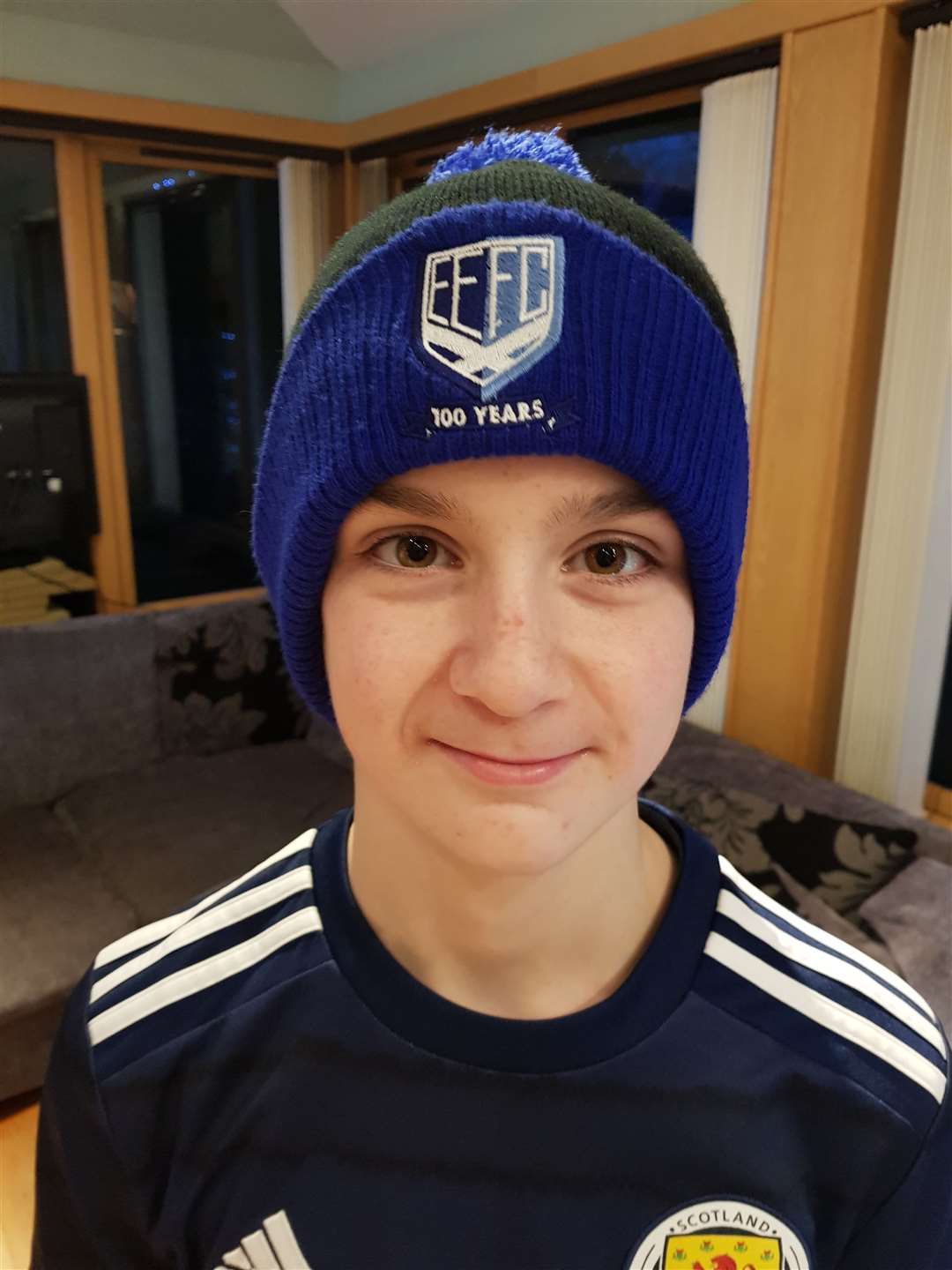A hundred years of East End: 'It gives the kids the chance to play as a team'
It should have been a year of celebration for East End – but the coronavirus crisis put a stop to that. Founded in 1920, the Wick-based junior football club had a busy programme of centenary events lined up only to have to cancel each one.
“We had loads of plans this year – we had tournaments, dances, everything,” club chairman Derek Shearer explained. “All the kids at the club got a hat with our new 100-year logo, so we dished out something like 165 hats to kids and coaches. But apart from that, all the plans got knocked on the head.”
A year of centenary activities would have allowed the club to underline just how much of an institution it has become and how valued it is by the community. Generations of youngsters from Wick and the surrounding area have come through its ranks – developing their skills, making friends and learning to play as team.
On Saturday mornings in the summer months the town's Bignold Park is a mass of enthusiastic children kitted out in their colourful football tops, split into their various age groups and being put through their paces by a small army of volunteer coaches.
“People talk about East End and you know immediately what it’s all about,” former chairman Alan Turner said. “You don’t even need to say it’s football, because everybody knows. It’s just part of the town.
“People talk about the Saturday mornings with all the kids there. Grandparents can come around to watch it to see all the kids training – you would call it a spectacle on a Saturday morning when they’re all there during summer.”
Outdoor sessions were disrupted for a time this year before resuming in later summer, initially in “bubbles”. Traditionally the club switches to indoor training during the winter months, although that was ruled out because of the Covid-19 restrictions so the town's all-weather has been used instead.
Few records survive from the early days, so there is limited knowledge about the club's origins, but its name reflects a geographical emphasis that was to continue for many years. “East End, even in my day in the leagues, was more for the east end of the town – the Pulteneytown area,” Alan pointed out.
It is also known that the club went into abeyance during World War II.
Major figures whose names crop up in any discussion about the history of East End include Jock More and James Bremner, who served for many years as president and chairman respectively. Allan Lannon had the secretary/treasurer role before it was taken over by Andrew Grant, while stalwarts of the present day include Ruth Ross and Alison Green.
You don’t even need to say it’s football, because everybody knows. It’s just part of the town.
Alan and Andrew are now honorary presidents, recognising their many decades of service to East End.
Andrew recalls the club having as many as 187 members one year. The annual coffee evening, incorporating the player of the year awards, was a huge occasion.
“It was a big event but it was quite a lot of work and we relied on the mothers and wives to organise it, and over the years it got less and less,” Alan explained. “That was really the only fundraising we did at that time.
“The presentation night with the players of the year, that continues.”
It was Andrew who instigated the move to expand East End's membership to include youngsters under the age of eight.
“Mini-rugby was on the go, and they were taking a lot of young kids and we weren’t taking them until eight years old,” he said. “I said it was time we started bringing in younger kids. We then brought in the rule that they had to be at school.
“Not that I had anything against mini-rugby. But I just felt it was ridiculous that they could play mini-rugby, which is a tougher sport than kicking a ball about, so we started a younger age group. So we had under-eights, 10s, 12s, 14s and 16s.”
Since then the age groups have been changed to under-sevens, nines, 11s, 13s and 15s. They take part in tournaments hosted by other clubs across the county as well as East End's own competitions and football festivals.
Originally a boys' club, it is now called East End FC and welcomes girls as well as boys.
Derek, who succeeded John Budge as chairman in 2019, explained: “There were girls for a good while when it was still called a boys’ club. Along with the correctness of it all, it had to change. We’ve had girl winners of the player of the year awards.”
None of it would be possible without volunteers, and help is always needed.
“We’ve got nearly 25 volunteers just now,” Derek said. “Some work offshore and some work shifts so we’ve got a bit of cover for them.
“They generally come in at under-seven level because their kids are going into primary one and they fancy helping out.
“If they didn’t volunteer, the club wouldn’t exist – or we’d lose an age group, possibly. We’ve been close to it in the past. We’ve got to the stage where we didn’t have enough coaches and we had to go out recruiting and begging, almost.
“A couple of years ago we said the under-sevens were going to disappear unless we could get helpers and suddenly we got about five or six people that were willing to help and they stuck with us.
“There is a recruitment drive every year. We are always looking for helpers.”
Child protection is a key element, and checks under the PVG (Protecting Vulnerable Groups) scheme are mandatory. But it is not essential for volunteers to have coaching qualifications.
“We need football coaches but we also need guys that are willing to come up and help out and be there,” Derek said. “They don’t need to have a football background or have a coaching badge or anything like that. They just need to be willing.”
Andrew pointed out: “You need a minimum of two per age group. Most of them stay until their children have dropped out of it but some daft folk like me and Alan stay on for longer.”
The club has a truly inclusive approach. It's not about selecting the best individual players and concentrating on them; the focus is on togetherness, teamwork and the fun of playing football.
“It’s giving the kids the chance to be involved in a club and to play with their friends and play as a team,” Derek said.
“We don’t look to develop players that are going to play for Scotland. Our priority is to get kids in of all talents, whether they’re amazing at football or whether they’re not so great at football – it doesn’t matter, it doesn’t make any difference, we just want them to be part of the club and part of a team. I think that’s the main thing.”
Andrew added: “We never threw anyone out of the club for being hopeless at football! As long as they were keen to come, they were welcome.”
The clubhouse – known to all as “the East End hut” – is leased from Highland Council, and the club has extended it over the years as well as investing in equipment. With that kind of commitment, allied to the dedication of the volunteers, the club looks well placed to thrive far into the future and keep the sense of continuity through the generations that has been a hallmark of its story so far.
“You meet a lot of people that you’ve known through coaching them – they’ve been part of the club as children and they have gone on to coach as well,” Alan said.
“It’s the progression that I think is good throughout the club. People recognise that they’ve had a good time, they’ve enjoyed the coaching and enjoyed the football, and then they want to give something back.
“We’re trying to do the best that we can as volunteers for the young children coming through and hopefully enjoying their football and then developing as adults.”




